 Sign in
Sign in
Business
Guy Raz | Wondery
Guy Raz interviews the world’s best-known entrepreneurs to learn how they built their iconic brands. In each episode, founders reveal deep, intimate moments of doubt and failure, and share insights on their eventual success. How I Built This is a master-class on innovation, creativity, leadership and how to navigate challenges of all kinds.New episodes release on Mondays and Thursdays. Listen to How I Built This on the Wondery App or wherever you listen to your podcasts. You can listen early and ad-free on Wondery+. Join Wondery+ in the Wondery App, Apple Podcasts or Spotify. Start your free trial by visiting wondery.com/links/how-i-built-this now. Get your How I Built This merch at WonderyShop.com/HowIBuiltThis.
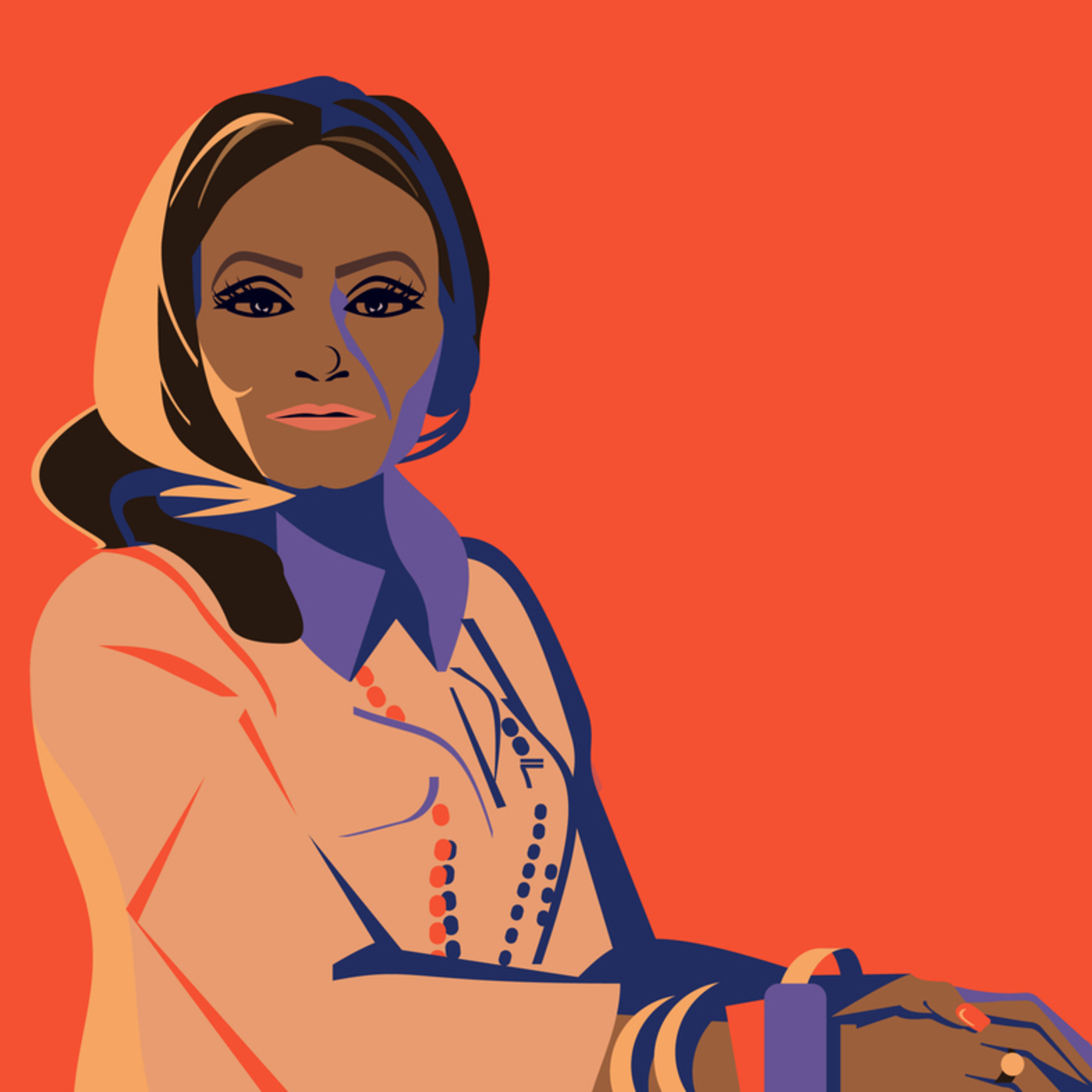
ActOne Group: Janice Bryant Howroyd
In the late 1970s Janice Bryant Howroyd moved to Los Angeles and began temping as a secretary. She soon realized there were many other young people in situations similar to hers. So with $1,500 in her pocket, Janice rented an office in Beverly Hills and created the staffing company ACT-1. Today, ActOne Group is an international workforce management company, making Janice Bryant Howroyd the first African-American woman to own a billion-dollar business. PLUS in our postscript "How You Built That," how Ofer and Helene Webman developed a device that can change the way an acoustic guitar sounds without bulky pedals and amps.
See Privacy Policy at https://art19.com/privacy and California Privacy Notice at https://art19.com/privacy#do-not-sell-my-info.
51:2503/12/2018
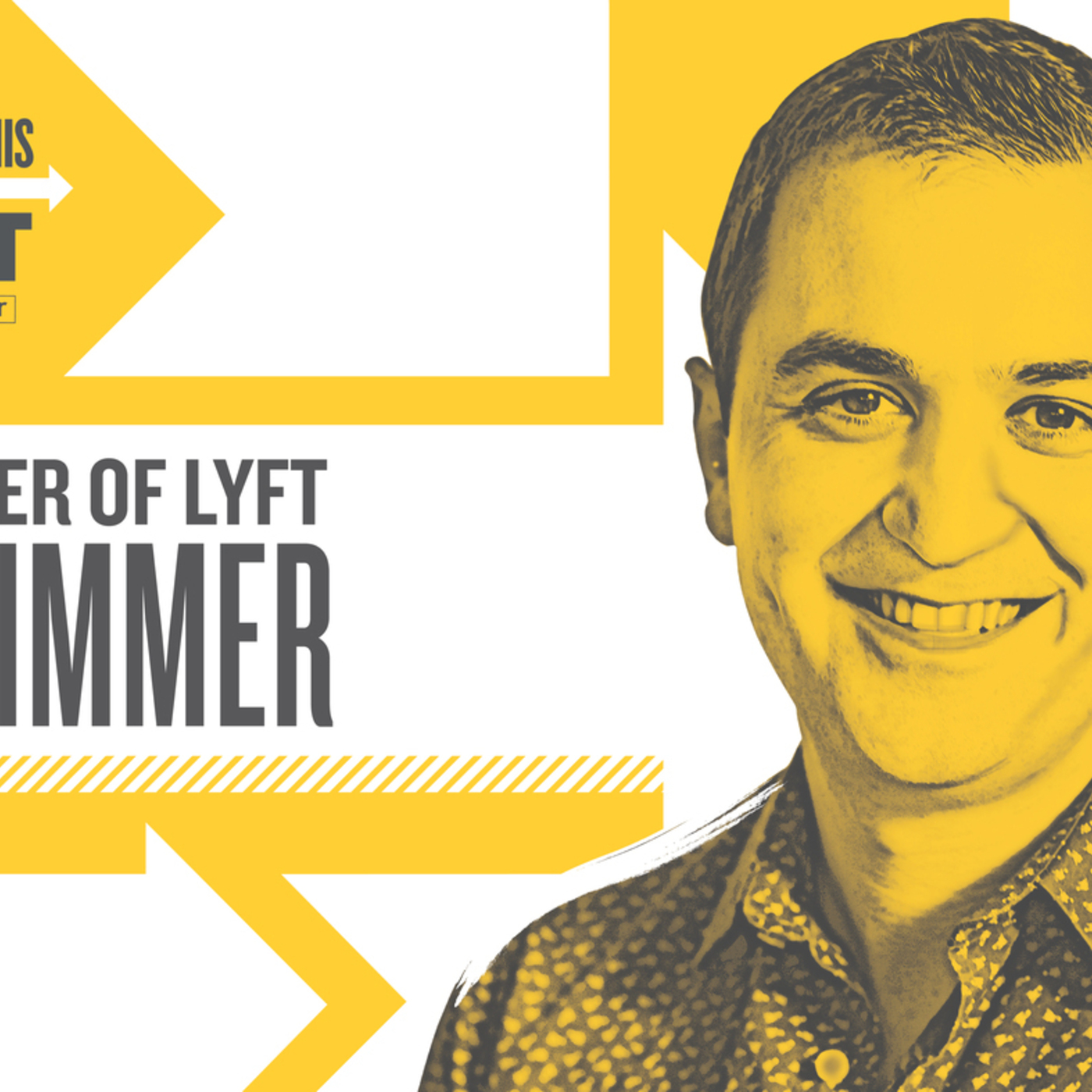
Lyft's John Zimmer At The HIBT Summit
Next up in our series of episodes from the How I Built This Summit: John Zimmer, co-founder of Lyft. John sat down with Guy Raz in front of a live audience in San Francisco last month to talk about Lyft's visions for the future of transportation – and their fierce competition with Uber. Coming up next month: three more episodes from the Summit – so keep checking your podcast feed every Thursday.See Privacy Policy at https://art19.com/privacy and California Privacy Notice at https://art19.com/privacy#do-not-sell-my-info.
18:2329/11/2018

Live Episode! Glossier: Emily Weiss
In 2010, while working as a fashion assistant at Vogue, Emily Weiss started a beauty blog called Into The Gloss. She quickly attracted a following of devoted readers hooked on the blog's intimate snapshots of style makers' beauty routines. Within a few years, Emily realized her readers were hungry for a new beauty brand, one that listened to them directly, and understood their lives. Without any prior business experience, she won over investors and found the perfect chemist to create Glossier, a line of beauty and skincare products with a focus on simplicity. Today, just four years after launch, Glossier is valued at an estimated $400 million. Recorded live in New York City.See Privacy Policy at https://art19.com/privacy and California Privacy Notice at https://art19.com/privacy#do-not-sell-my-info.
51:1526/11/2018
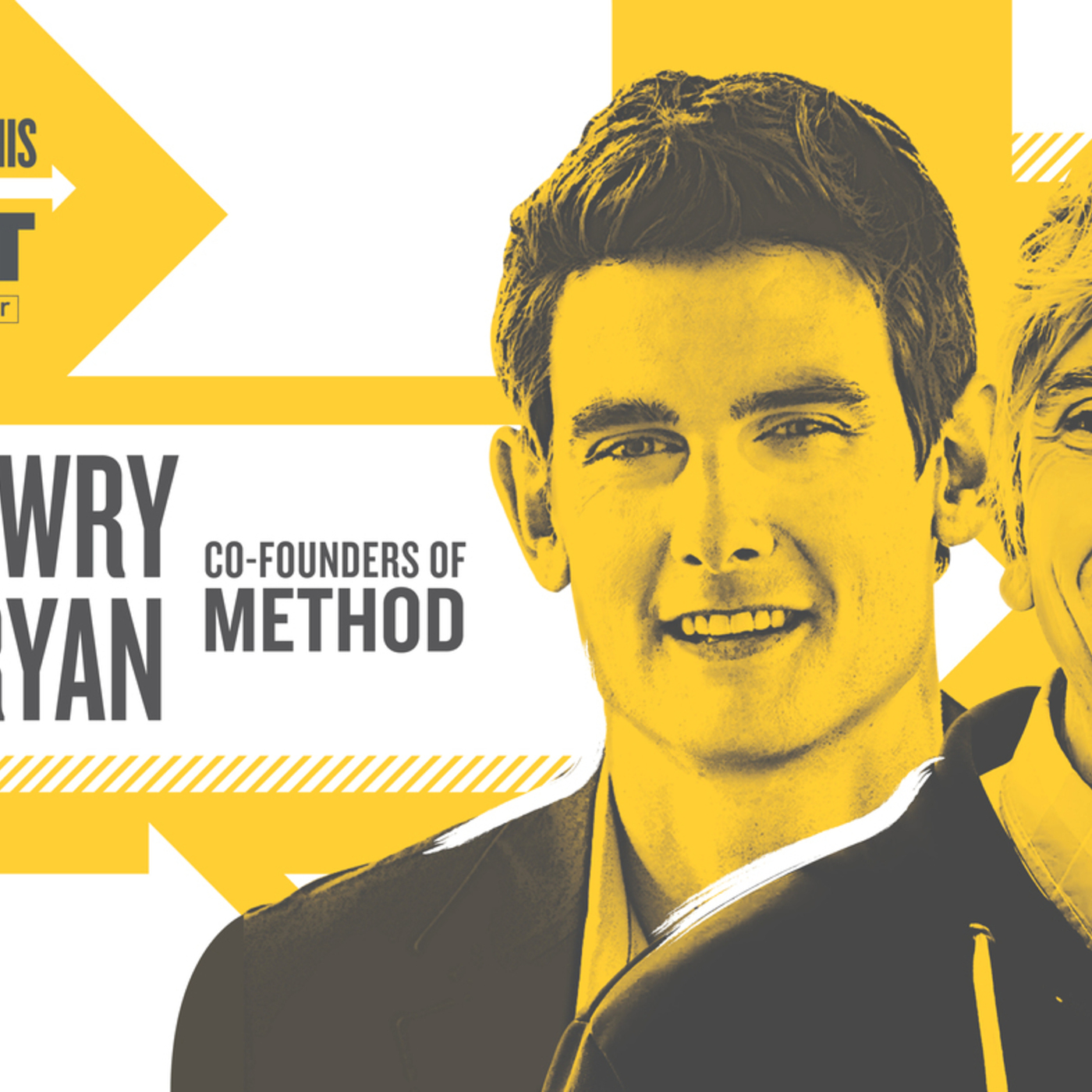
Method's Adam Lowry And Eric Ryan At The HIBT Summit
This episode from the How I Built This Summit features Adam Lowry and Eric Ryan, co-founders of Method cleaning products. Adam and Eric joined Guy Raz live on stage at the Summit in San Francisco, to talk the highs and lows of their business partnership. Every Thursday until mid-December, we'll be releasing more episodes from the Summit – so keep checking your podcast feed.See Privacy Policy at https://art19.com/privacy and California Privacy Notice at https://art19.com/privacy#do-not-sell-my-info.
16:3422/11/2018

Whole Foods Market: John Mackey (2018)
In 1978, college drop-out John Mackey scraped together $45,000 to open his first health food store, "Safer Way." A few years later he co-founded Whole Foods Market — and launched an organic food revolution that helped change the way Americans shop. PLUS in our postscript "How You Built That," we check back in with Steve Humble, whose company Creative Home Engineering makes hidden secret passageways in people's homes ... just like in the movies. (Original broadcast date: May 15, 2017.)
See Privacy Policy at https://art19.com/privacy and California Privacy Notice at https://art19.com/privacy#do-not-sell-my-info.
45:0219/11/2018
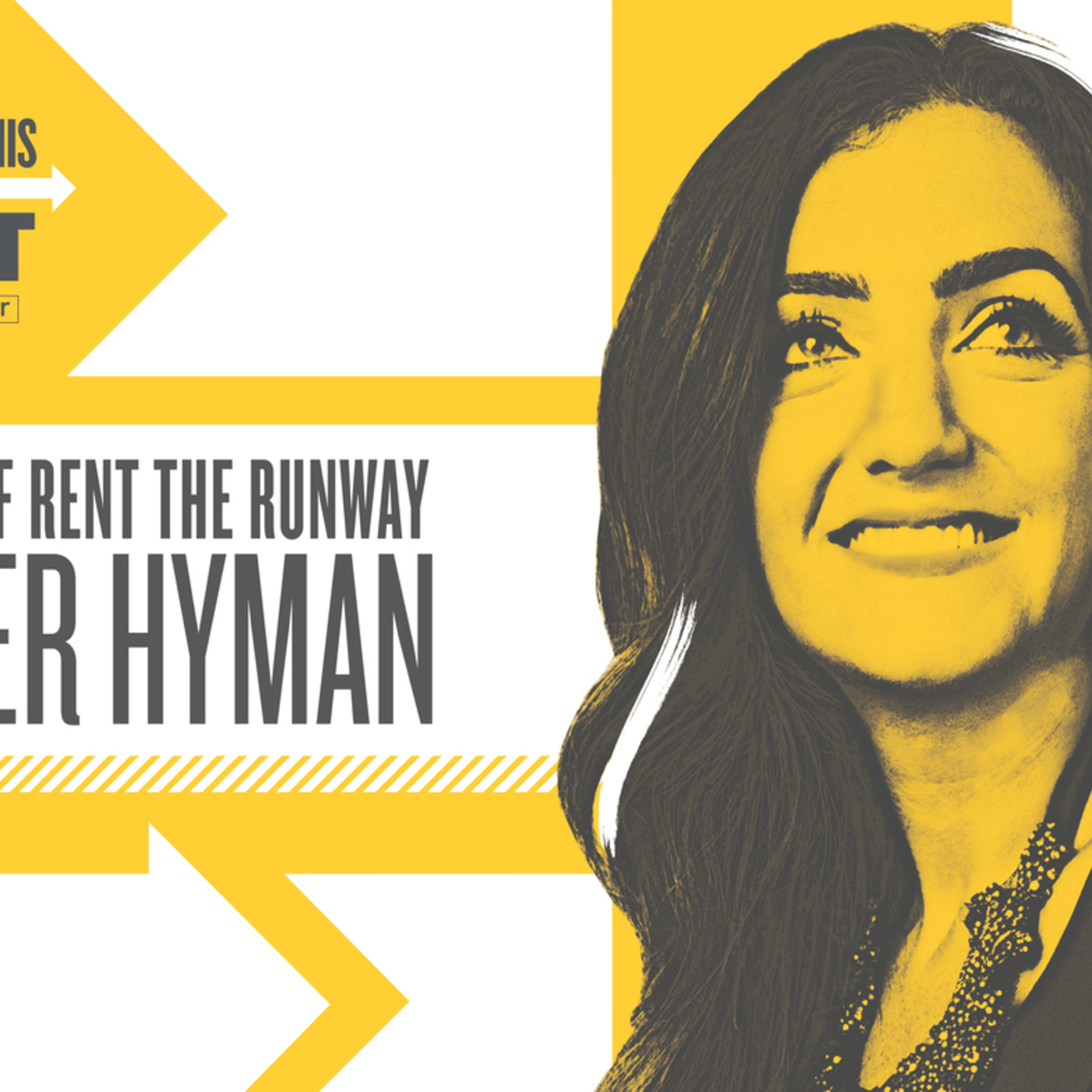
Rent The Runway's Jenn Hyman At The HIBT Summit
Our first episode from the How I Built This Summit features Jenn Hyman, co-founder of Rent The Runway, a designer clothing rental service that pulls in $100 million a year. When Jenn sat down with Guy Raz for a live interview at the Summit in San Francisco, she shared her long term strategy for launching the company in phases, plus her advice for aspiring entrepreneurs. Every Thursday until mid-December, we'll be releasing episodes from the Summit – so keep checking your podcast feed.See Privacy Policy at https://art19.com/privacy and California Privacy Notice at https://art19.com/privacy#do-not-sell-my-info.
15:4315/11/2018

DoorDash: Tony Xu
In 2013, Tony Xu was brainstorming ideas for a business school project when he identified a problem he wanted to solve: food delivery. For most restaurants, it was too costly and inefficient, leaving most of the market to pizza and Chinese. Tony and his partners believed they could use technology to connect customers to drivers, who would deliver meals in every imaginable cuisine. That idea grew into DoorDash, a company that's now delivered over 100 million orders from over 200,000 restaurants across the country. PLUS in our postscript "How You Built That," we hear from the winner of our 2018 HIBT Summit Pitch Competition: Ashlin Cook. She combined her love for dogs with an entrepreneurial itch to create Winnie Lou: a Colorado business that sells healthy dog treats in independent pet stores and from a food truck.
See Privacy Policy at https://art19.com/privacy and California Privacy Notice at https://art19.com/privacy#do-not-sell-my-info.
50:2012/11/2018
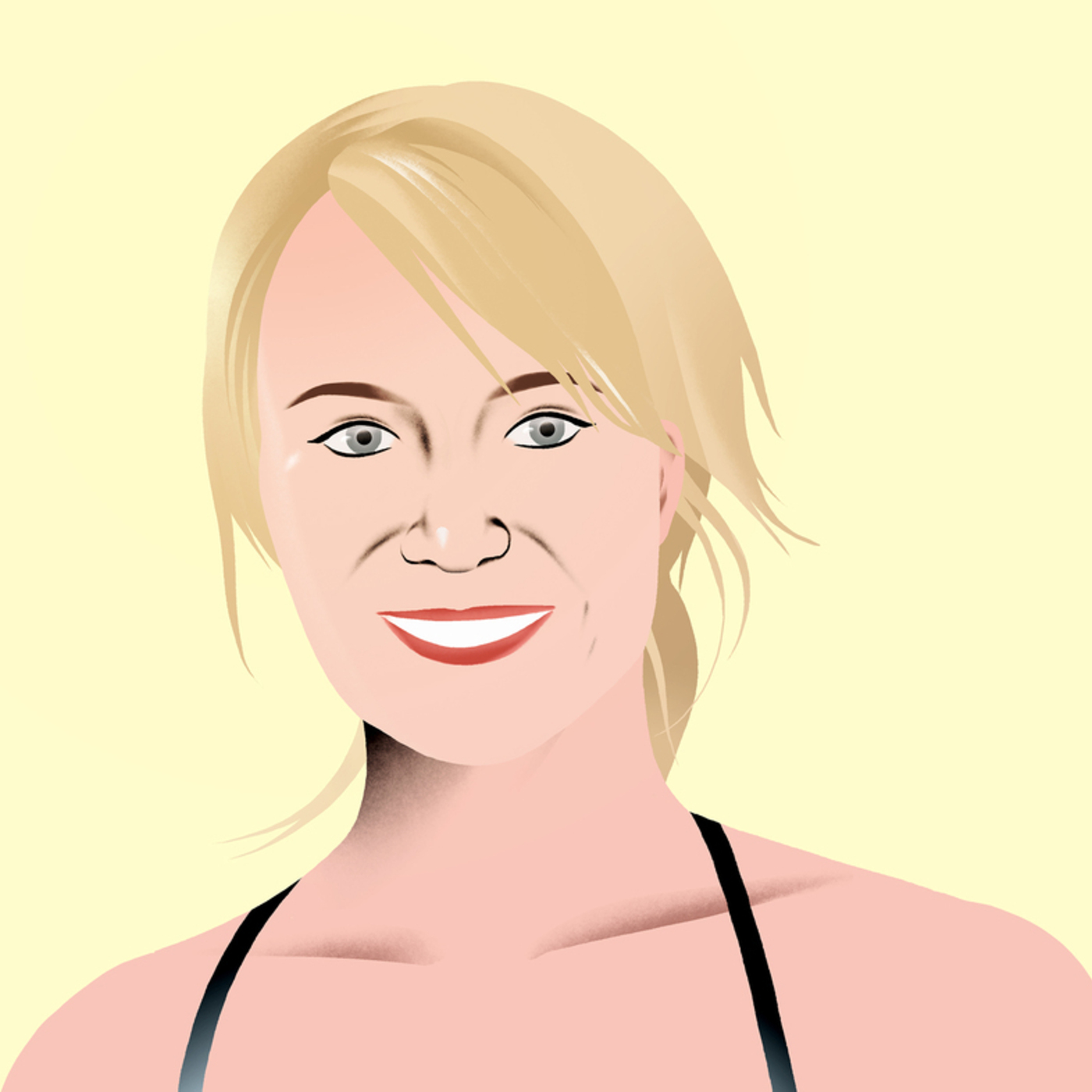
Barre3: Sadie Lincoln (2017)
Sadie Lincoln and her husband, Chris, had what seemed like the perfect life – well-paying jobs, a house in the Bay Area, two kids. But one day they decided to sell everything and start a new business called Barre3: a studio exercise program that blends ballet with pilates and yoga. Today, Barre3 has more than 100 studios across the country. PLUS in our postscript "How You Built That," we check back with Alexander Harik, who turned his mom's recipe for fragrant Middle Eastern za'atar spread into Zesty Z: The Za'atar Company. (Original broadcast date: September 11, 2017.)
See Privacy Policy at https://art19.com/privacy and California Privacy Notice at https://art19.com/privacy#do-not-sell-my-info.
47:3905/11/2018

Betterment: Jon Stein
When Jon Stein realized he couldn't stand the sight of blood, he gave up the idea of becoming a doctor. Instead, he went into finance, but soon grew restless with "helping banks make more money." So he decided to build a business where he could help everyday investors make more money: an online service that would use a combination of algorithms and human advisers. Jon launched Betterment at a precarious time — shortly after the financial crash of 2008. But today, the company has roughly 13 billion dollars under management. PLUS in our postscript "How You Built That," how Gerry Stellenberg combined his knack for technology and his love for pinball to create the P3: a pinball machine that allows a real-life ball to interact with virtual objects.
See Privacy Policy at https://art19.com/privacy and California Privacy Notice at https://art19.com/privacy#do-not-sell-my-info.
53:2129/10/2018
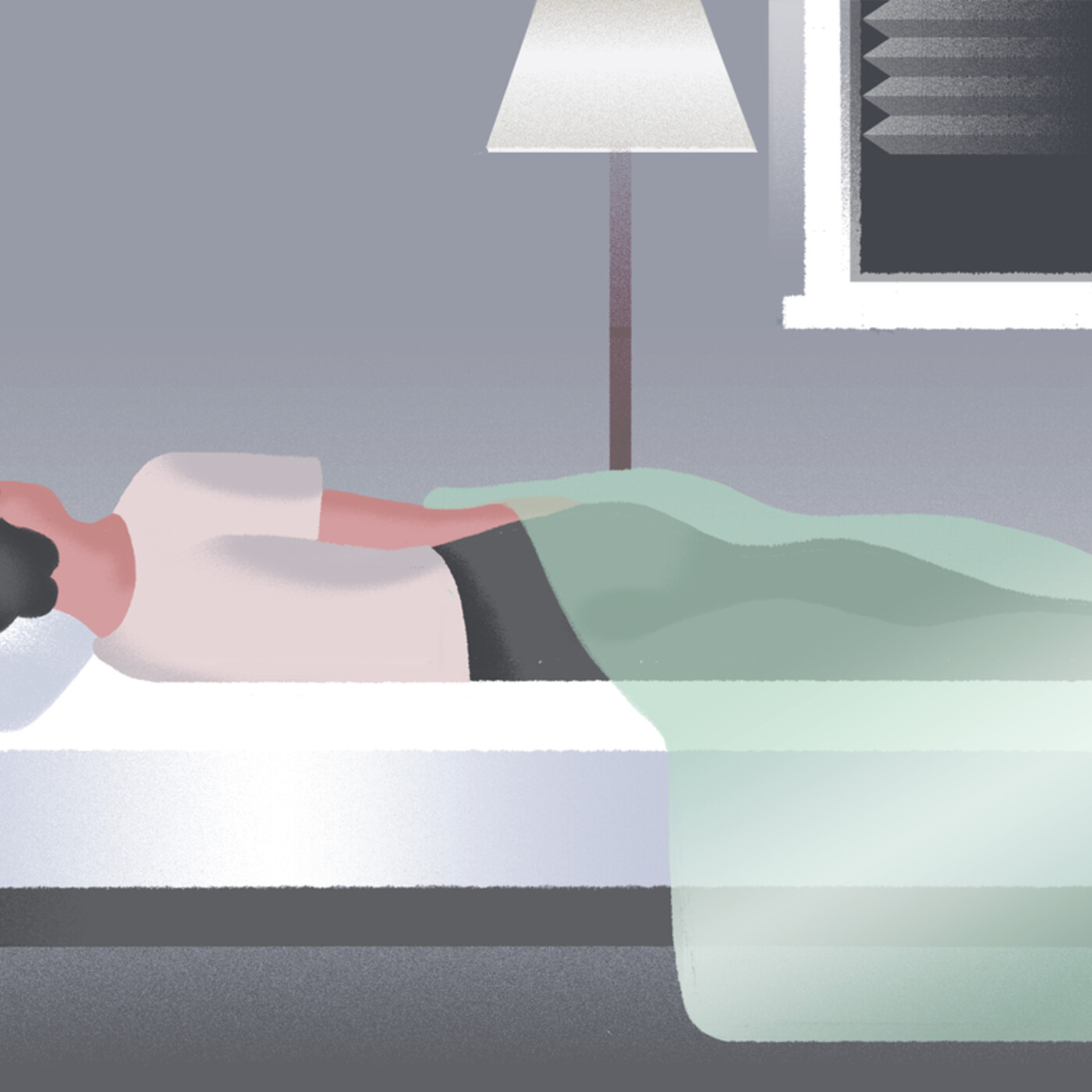
Tempur-Pedic: Bobby Trussell
At age 40, Bobby Trussell's promising career in horse racing hit a dead end. With bills to pay and a family to support, he stumbled across a curious product that turned into a lifeline: squishy-squashy memory foam. He jumped at the chance to distribute Swedish memory foam pillows and mattresses to Americans. Tempur-Pedic USA began by selling to chiropractors and specialty stores, providing one of the first alternatives to spring mattresses. Today, the company is one of the largest bedding providers in the world. PLUS in our postscript "How You Built That," how Christopher Rannefors created BatBnB: a sleek wooden box that hangs on your house and provides a home for mosquito-eating bats.
See Privacy Policy at https://art19.com/privacy and California Privacy Notice at https://art19.com/privacy#do-not-sell-my-info.
01:02:0222/10/2018

Rent The Runway: Jenn Hyman (2018)
Jenn Hyman got the idea for Rent the Runway in 2008, after she watched her sister overspend on a new dress rather than wear an old one to a party. Jenn and her business partner built a web site where women could rent designer dresses for a fraction of the retail price. As the company grew, they dealt with problems that many female entrepreneurs face, including patronizing investors and sexual harassment. Despite these challenges, Rent The Runway now rents dresses to nearly six million women and has a reported annual revenue of $100 million. PLUS in our postscript "How You Built That," we check back with Monica Mizrachi and her son Solomon who built EzPacking, a business that sells sets of clear squishy plastic packing cubes. (Original broadcast date: August 7, 2017.)
See Privacy Policy at https://art19.com/privacy and California Privacy Notice at https://art19.com/privacy#do-not-sell-my-info.
54:2515/10/2018
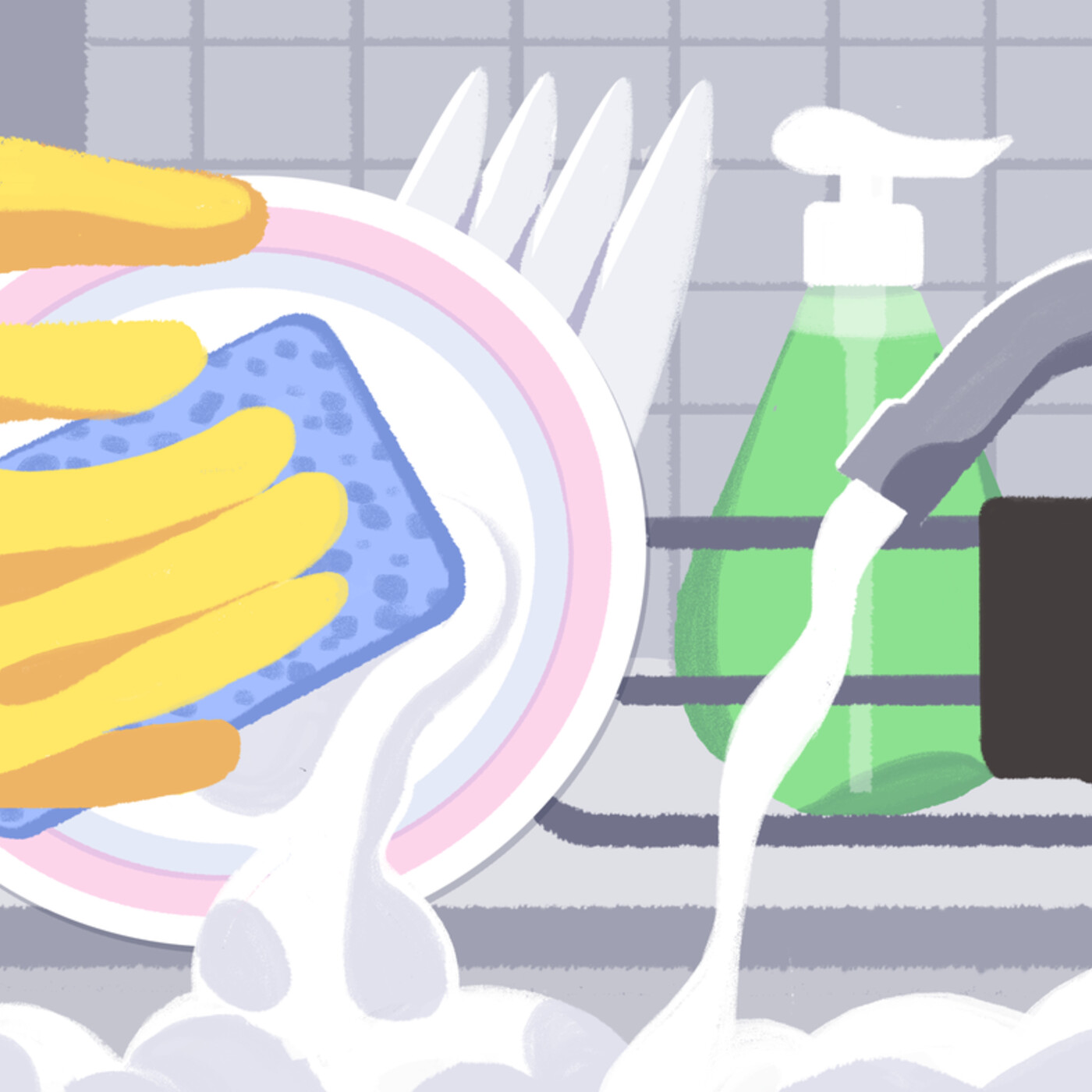
method: Adam Lowry & Eric Ryan
In the late 1990s, Adam Lowry and Eric Ryan took on the notion that "green doesn't clean" by setting out to make soap that could clean a bathtub without harming the environment. Adam started experimenting with baking soda, vinegar, and scented oils, while Eric worked on making sleek bottles that looked good on a kitchen counter. Just a few years later, Adam and Eric were selling Method cleaning products in stores throughout the country, after a bold gamble got them on the shelves of Target. PLUS, for our postscript "How You Built That," how Loren and Lisa Poncia turned a 100 year-old family business into an organic beef supplier: Stemple Creek Ranch.
See Privacy Policy at https://art19.com/privacy and California Privacy Notice at https://art19.com/privacy#do-not-sell-my-info.
55:5208/10/2018

Cisco Systems & Urban Decay: Sandy Lerner
In the pre-Internet 1970's, Sandy Lerner was part of a loosely-knit group of programmers that was trying to get computers to talk to each other. Eventually, she and Len Bosack launched Cisco Systems, making the routing technology that helped forge the plumbing of the Internet. But when things turned sour at the company, she was forced to leave, giving her the chance to start something entirely new: an edgy line of cosmetics called Urban Decay. PLUS in our postscript "How You Built That," how Justin Li created a solution for staying cool and hydrated in the heat with IcePlate.
See Privacy Policy at https://art19.com/privacy and California Privacy Notice at https://art19.com/privacy#do-not-sell-my-info.
01:00:1701/10/2018
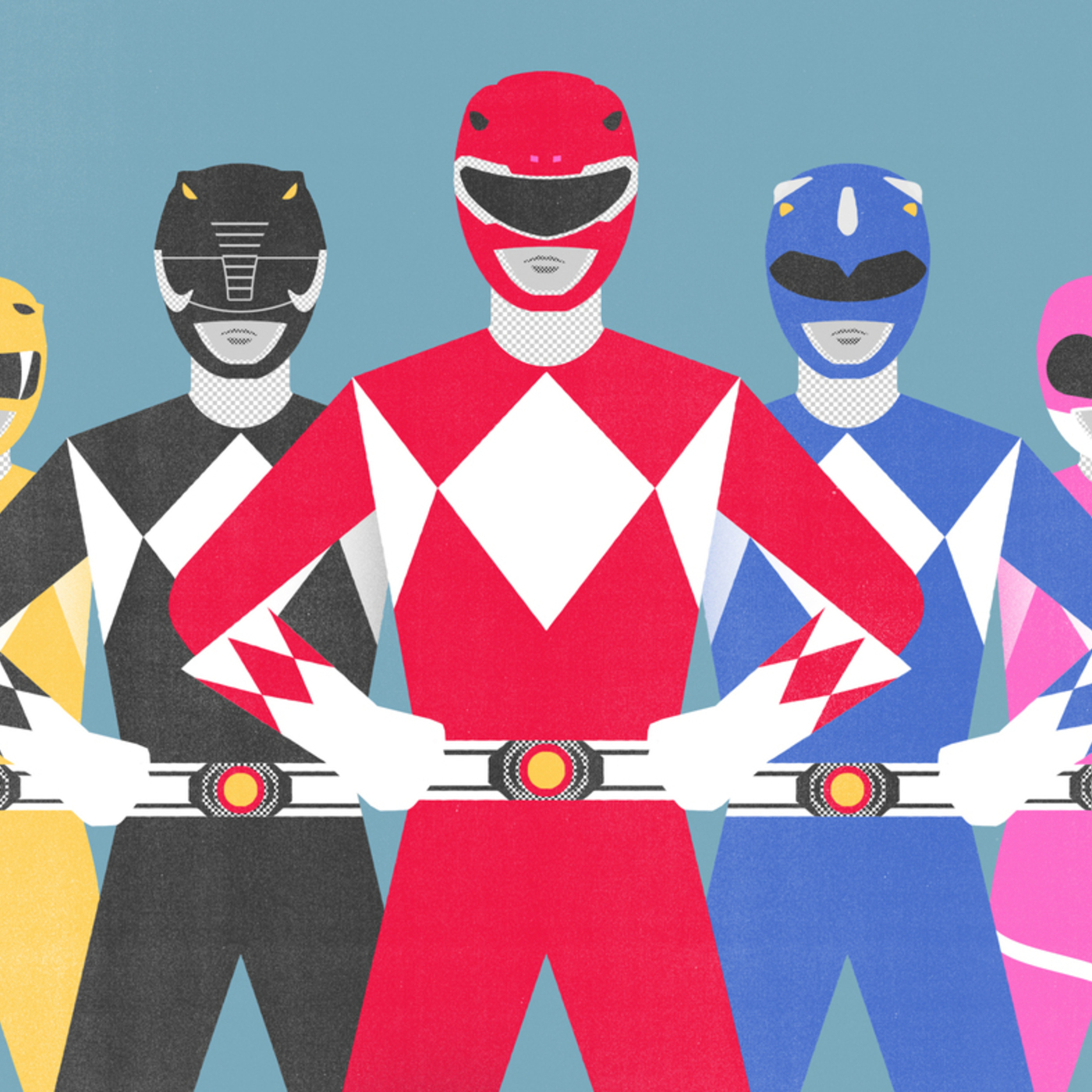
Power Rangers: Haim Saban (2017)
As a refugee growing up in Tel Aviv, Haim Saban remembers not having enough money to eat. As an adult, he hustled his way into the entertainment business, writing theme songs for classic cartoons like Inspector Gadget and Heathcliff. But producing the mega-hit Mighty Morphin Power Rangers put him on track to becoming a billionaire media titan. PLUS in our postscript "How You Built That," we check back with Chris Waters who created Constructed Adventures, elaborate scavenger hunts for all occasions. (Original broadcast date: March 27, 2017.)
See Privacy Policy at https://art19.com/privacy and California Privacy Notice at https://art19.com/privacy#do-not-sell-my-info.
42:3124/09/2018

Bobbi Brown Cosmetics: Bobbi Brown
Bobbi Brown started out as a makeup artist in New York City, but hated the gaudy color palette of the 1980s. She eventually shook up the industry by introducing "nude makeup" with neutral colors and a natural tone. In 1995, Estée Lauder acquired Bobbi Brown Cosmetics and Bobbi remained there for 22 years, until she realized the brand was no longer the one she had built. PLUS, for our postscript "How You Built That," how Emma Cohen and Miles Pepper saw a problem with plastics and developed a collapsible, reusable drinking straw.
See Privacy Policy at https://art19.com/privacy and California Privacy Notice at https://art19.com/privacy#do-not-sell-my-info.
51:3917/09/2018
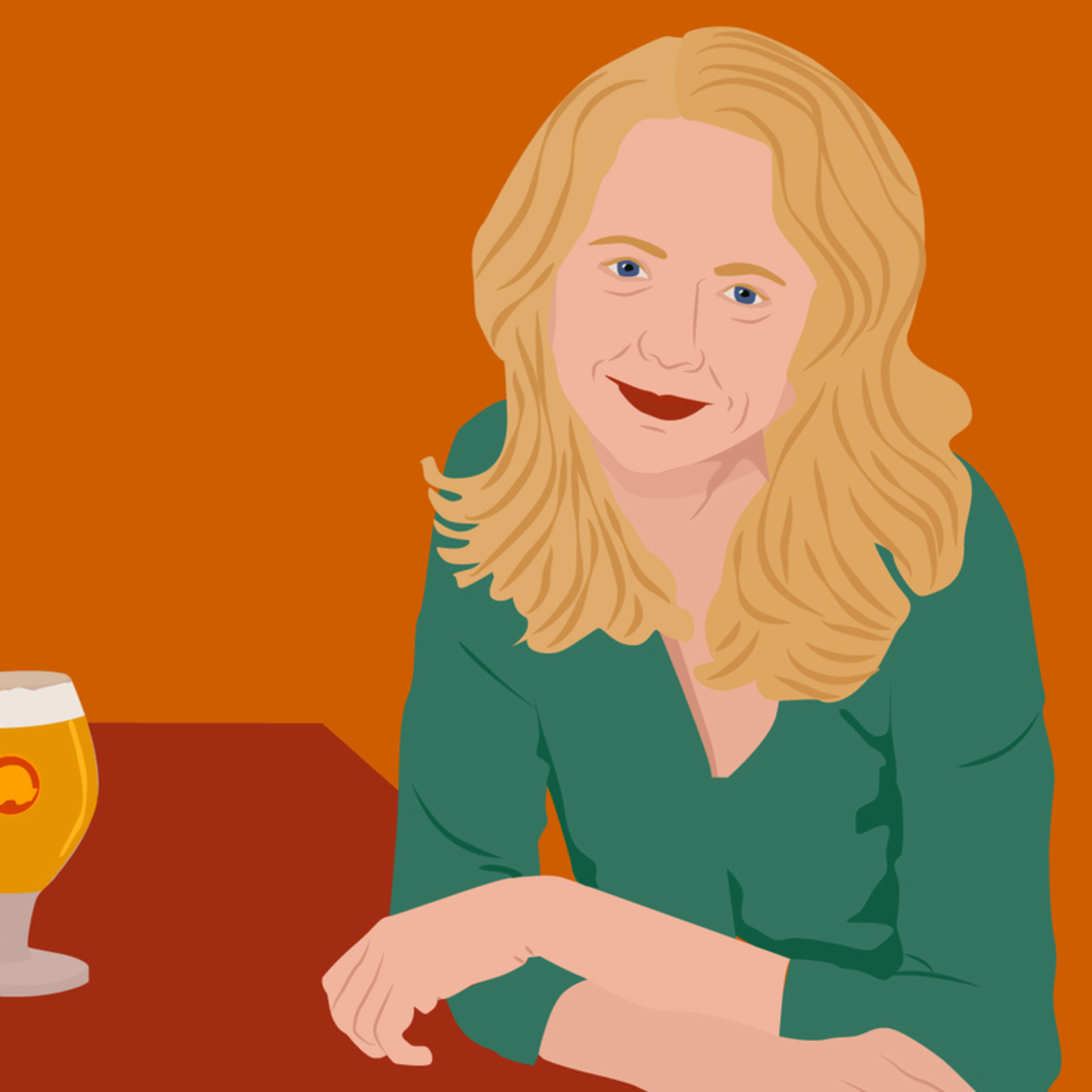
Live Episode! New Belgium Brewing Company: Kim Jordan
In 1991 newlyweds Kim Jordan and Jeff Lebesch took out a second mortgage on their home in Fort Collins, Colorado to start a craft brewery in their basement. Jeff had been inspired by the fruit and spice-infused beers he had tasted on a bike trip to Belgium, so they named their company New Belgium, and launched a beer with the whimsical name, Fat Tire. Today, New Belgium Brewing Company is one of the largest craft brewers in the U.S., and Kim Jordan remains one of the few women founders in a male-dominated industry. Recorded live in Boulder, Colorado.
See Privacy Policy at https://art19.com/privacy and California Privacy Notice at https://art19.com/privacy#do-not-sell-my-info.
44:2710/09/2018

WeWork: Miguel McKelvey (2018)
In 2007, architect Miguel McKelvey convinced his friend Adam Neumann to share an office space in Brooklyn. That was the beginning of WeWork: a shared workspace for startups and freelancers looking for an inspiring environment to do their work. Today, WeWork has created a "community of creators" valued at nearly $16 billion. PLUS in our postscript "How You Built That," we check back with Kristel Gordon who invented a solution for easily stuffing a duvet back into its cover – it's called Duvaid. (Original broadcast date: June 19, 2017.)
See Privacy Policy at https://art19.com/privacy and California Privacy Notice at https://art19.com/privacy#do-not-sell-my-info.
51:4103/09/2018

TRX: Randy Hetrick (2018)
In 1997, Navy SEAL Randy Hetrick was deployed in Southeast Asia, where he was stationed in a remote warehouse for weeks with no way to exercise. So he grabbed an old jujitsu belt, threw it over a door, and started doing pull-ups. Today, TRX exercise straps dangle from the ceiling in gyms across the country and are standard workout gear for professional athletes. PLUS in our postscript "How You Built That," we check back with a husband-and-wife team who experimented with fruit, spices and vinegar and came up with a gourmet ketchup line called 'Chups. (Original broadcast date: June 26, 2017).
See Privacy Policy at https://art19.com/privacy and California Privacy Notice at https://art19.com/privacy#do-not-sell-my-info.
43:1727/08/2018
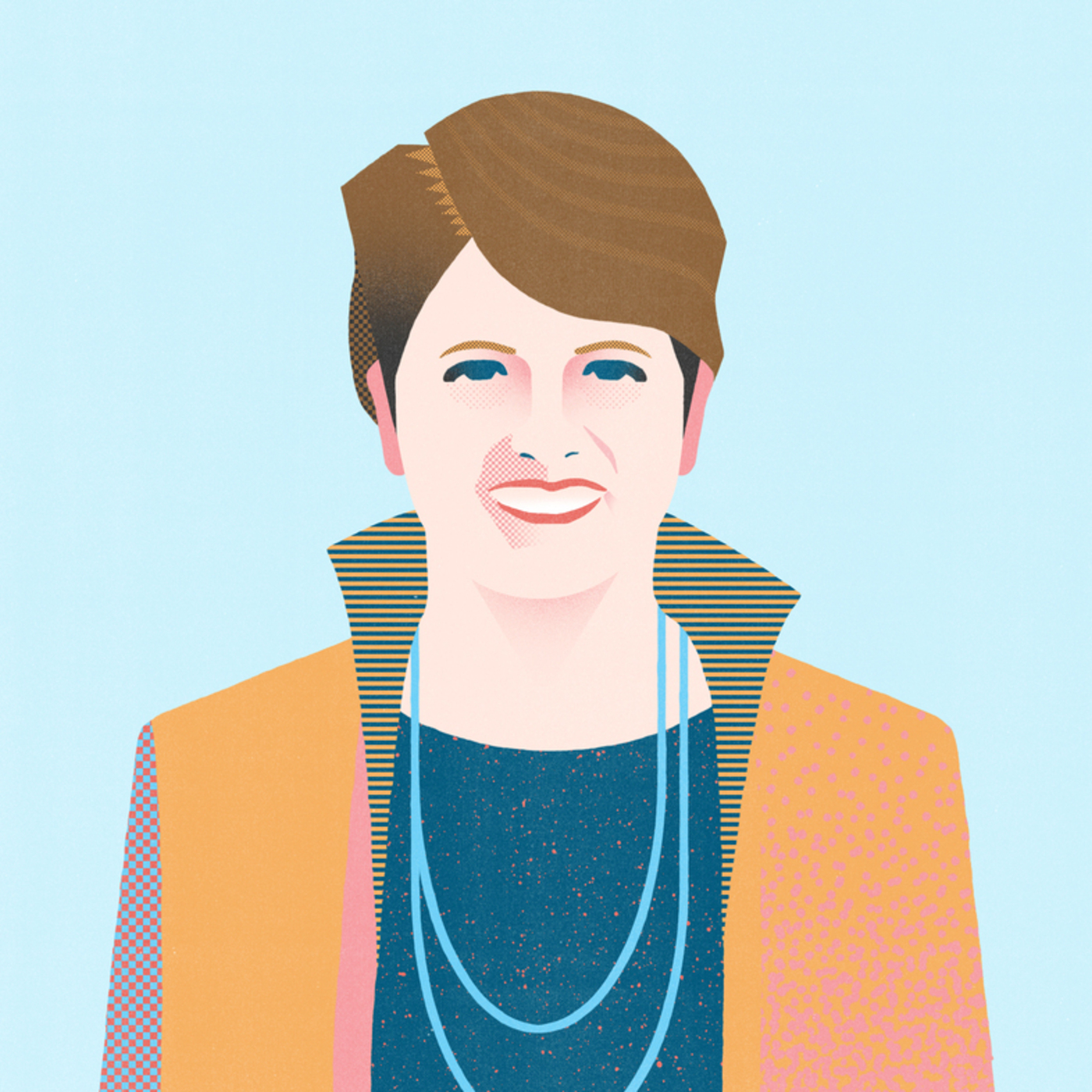
Angie's List: Angie Hicks (2016)
In 1995, Angie Hicks spent months going door-to-door in Columbus, Ohio, trying to get people to sign up for a new home services referral business. Today, Angie's List is a household name, referring millions of members to plumbers, painters, and more. PLUS in our postscript "How You Built That," we check back with Joel Crites who created the app Micro Fantasy, where fans can make predictions about what will happen next in a baseball game. (Original broadcast date: November 28, 2016)
See Privacy Policy at https://art19.com/privacy and California Privacy Notice at https://art19.com/privacy#do-not-sell-my-info.
32:2020/08/2018
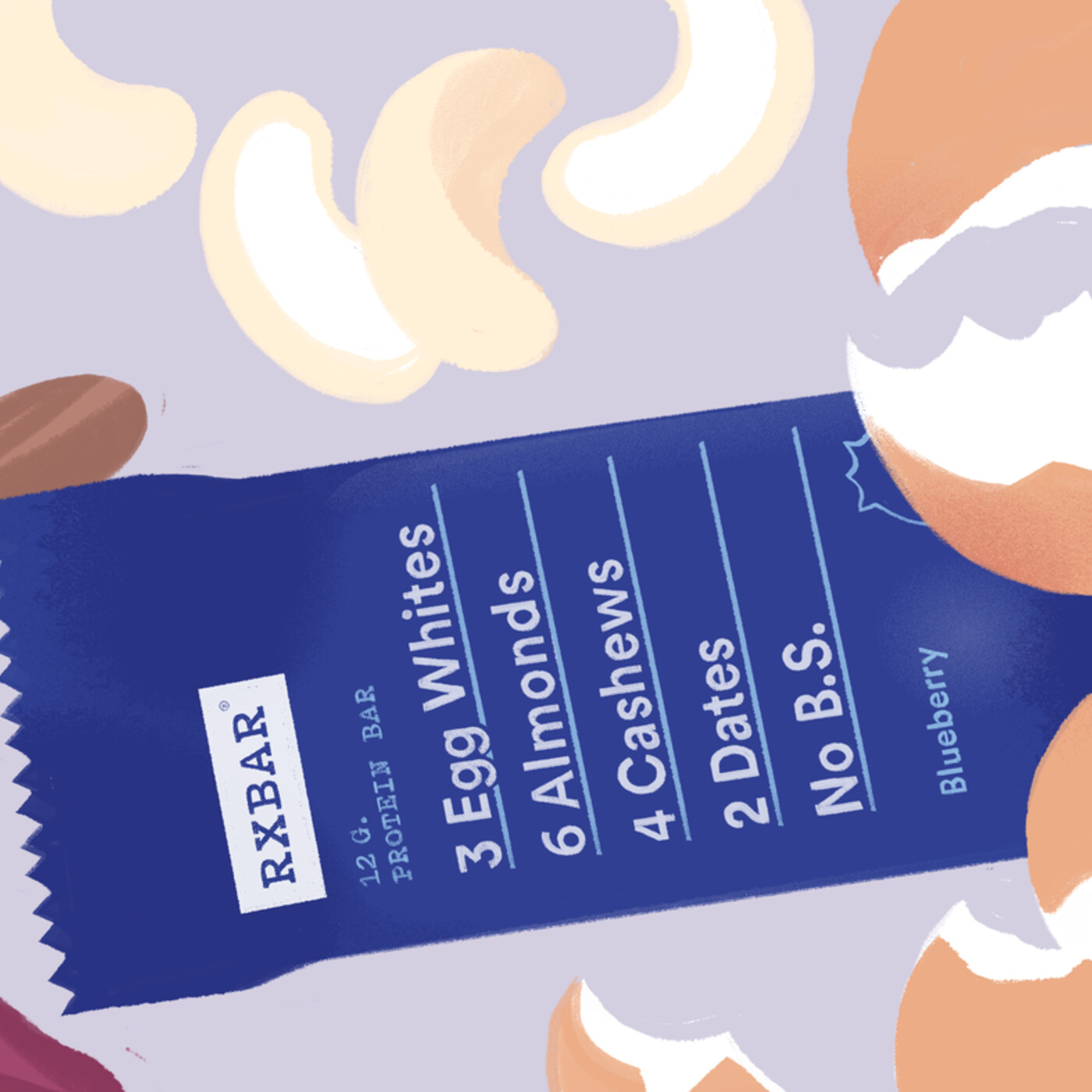
Live Episode! RXBAR: Peter Rahal
In 2013, Peter Rahal was obsessed with CrossFit, but noticed it didn't sell any snacks to align with its pro-paleo philosophy. So instead of joining his family's business, Rahal Foods, he recruited his friend Jared Smith to start making their own protein bar. They made the first RXBAR in a Cuisinart in Peter's parents' home in suburban Chicago. By 2016, RXBAR was doing over $36 million in sales, and in November 2017, the founders sold the company to Kellogg's for $600 million. Recorded live in Chicago.
See Privacy Policy at https://art19.com/privacy and California Privacy Notice at https://art19.com/privacy#do-not-sell-my-info.
47:4813/08/2018
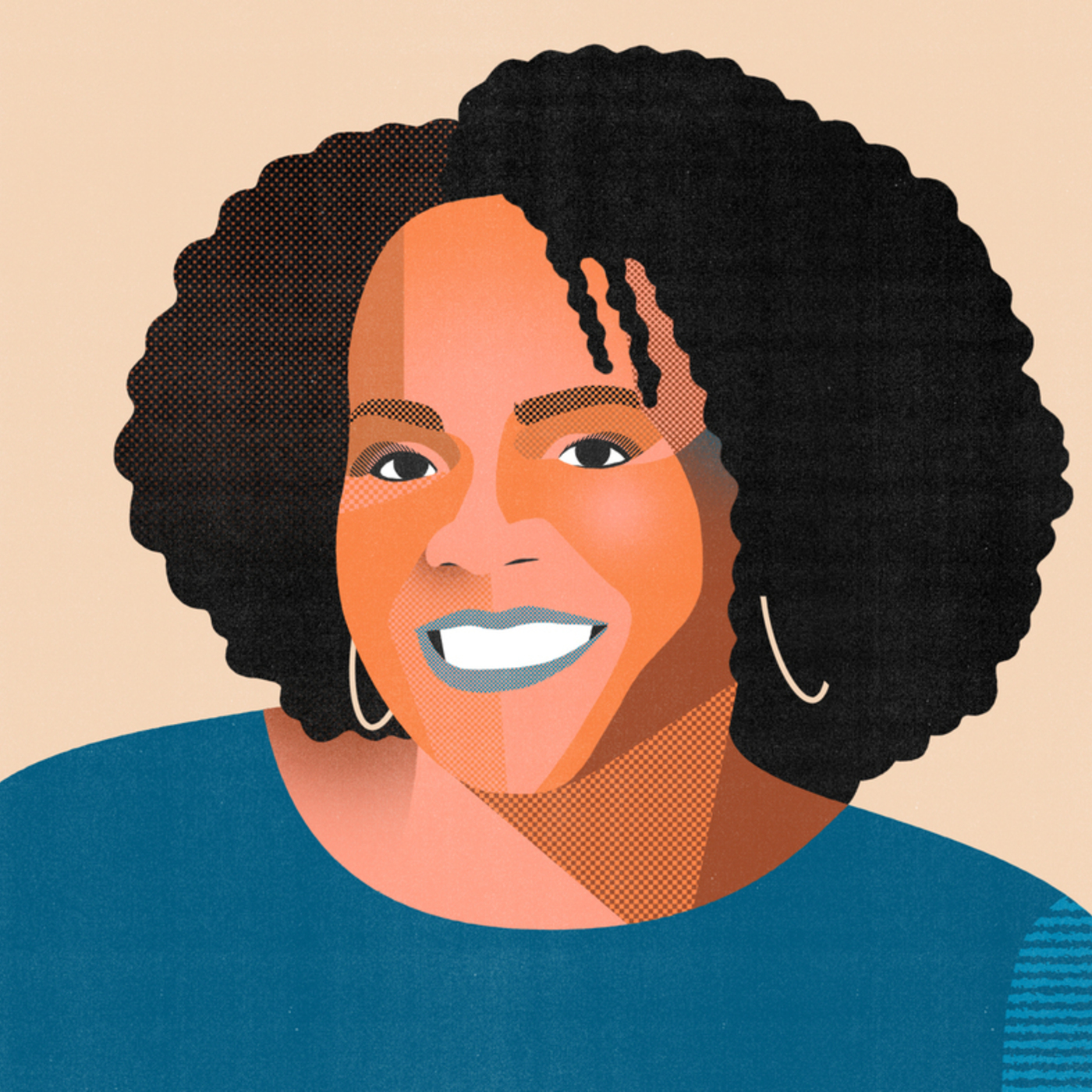
Carol's Daughter: Lisa Price (2018)
Lisa Price worked in television but had a passion for beauty products. At her mother's suggestion, she began selling her homemade moisturizer at a church flea market. Twenty years later, Carol's Daughter is one of the leading beauty brands catering to African-American women. PLUS in our postscript "How You Built That," we check back in with Aiden Emilio who, along with her husband Jesse, created RexSpecs — UV-protecting goggles for dogs.
See Privacy Policy at https://art19.com/privacy and California Privacy Notice at https://art19.com/privacy#do-not-sell-my-info.
41:5306/08/2018
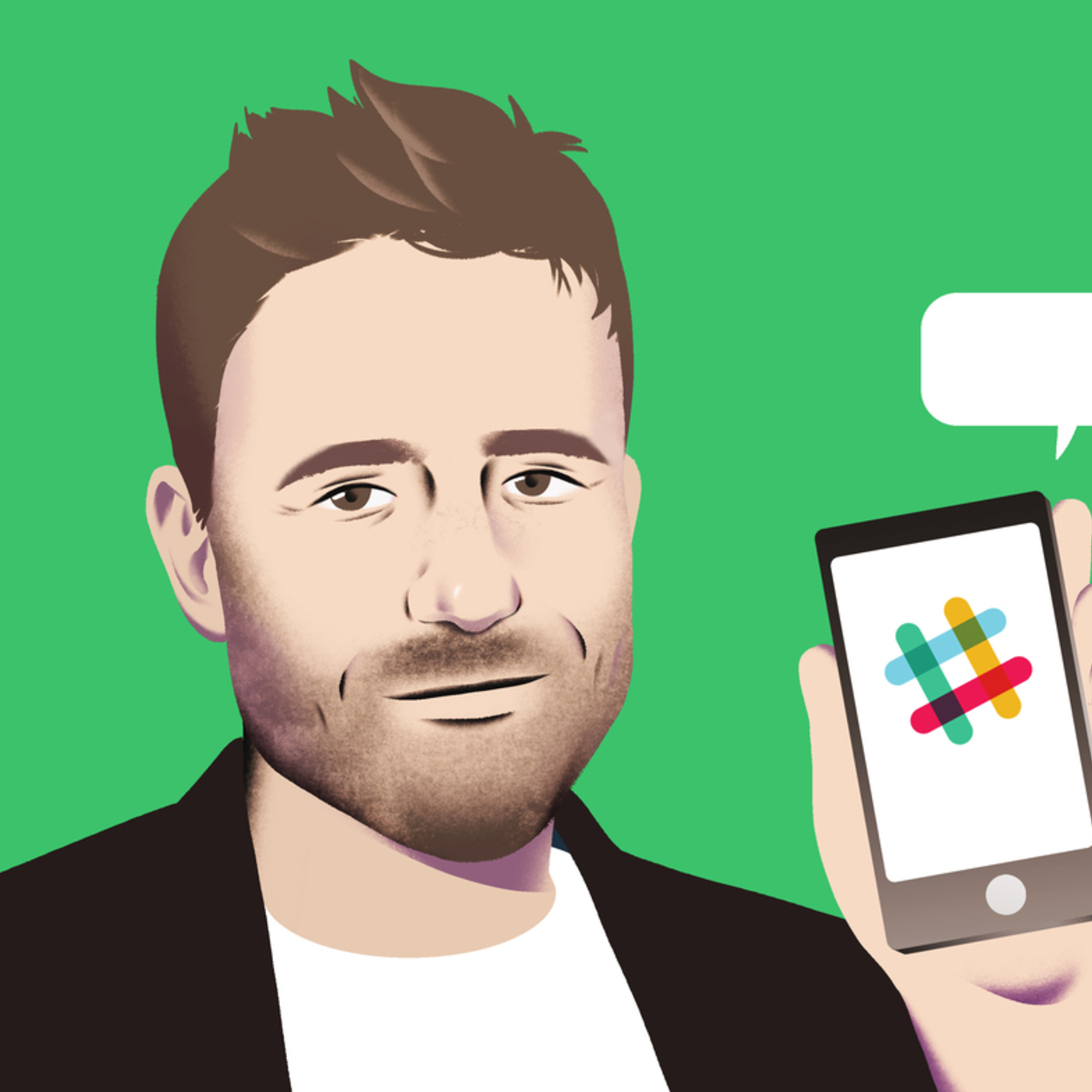
Slack & Flickr: Stewart Butterfield
In the early 2000s, Stewart Butterfield tried to build a weird, massively multiplayer online game, but the venture failed. Instead, he and his co-founders used the technology they developed to create the photo-sharing site Flickr. After Flickr was acquired by Yahoo in 2005, Butterfield went back to the online game idea, only to fail again. But the office messaging platform Slack rose from the ashes of that second failure — a company which, today, is valued at over $5 billion. PLUS, for our postscript "How You Built That," how a peanut butter obsession turned teenager Abby Kircher into a CEO before she was old enough to drive.
See Privacy Policy at https://art19.com/privacy and California Privacy Notice at https://art19.com/privacy#do-not-sell-my-info.
01:03:0530/07/2018
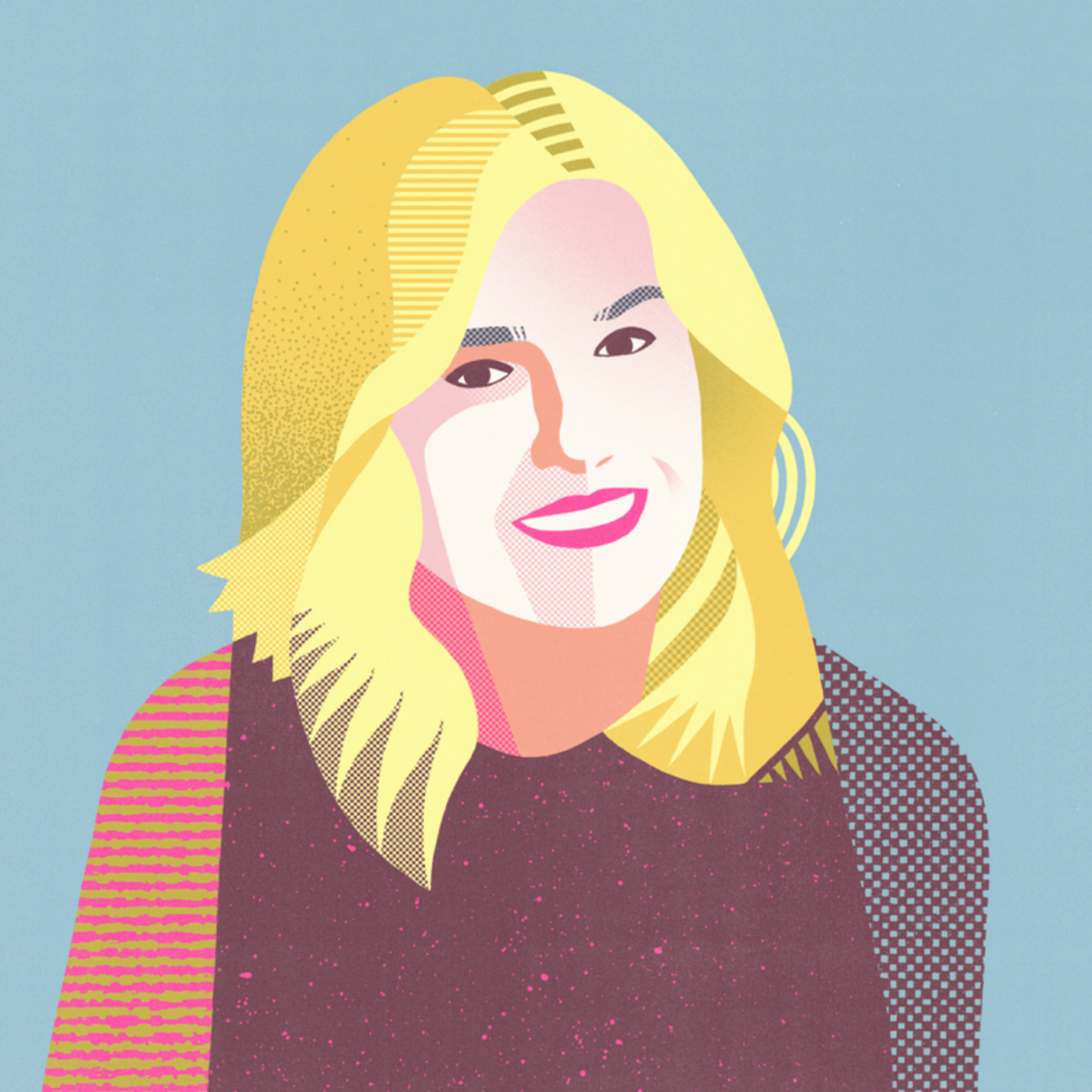
Drybar: Alli Webb (2017)
A decade ago, full-time mom Alli Webb noticed a gap in the beauty market: there was no place that just focused on blow-drying hair. Now with more than 100 locations, Drybar is testament to Webb's motto: Focus on one thing and be the best at it. PLUS in our postscript "How You Built That," we check back in with Chris Healy, a long-haired Southern Californian who co-founded The Longhairs and created special hair ties for guys.
See Privacy Policy at https://art19.com/privacy and California Privacy Notice at https://art19.com/privacy#do-not-sell-my-info.
33:3623/07/2018
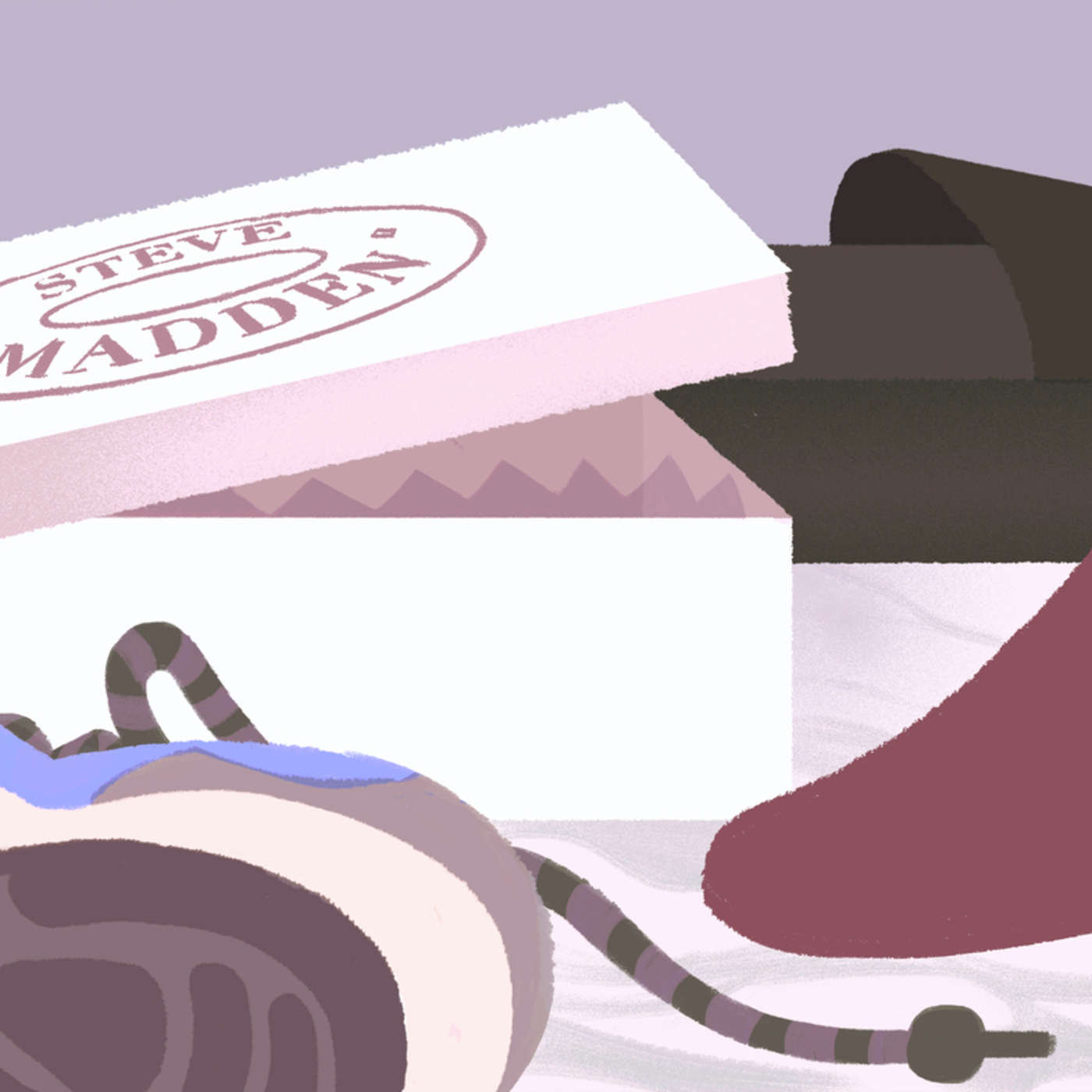
Steve Madden: Steve Madden
Steve Madden fell in love with the shoe business in the 1970's, when he sold platform shoes at a neighborhood store in Long Island, New York. That was in high school. About 15 years later, he struck out on his own, designing and selling shoes with a high-end look at affordable prices. As his business – and his ambitions — began to grow, he got involved in a securities fraud scheme and wound up serving two and-a-half years in prison. In 2005, he returned to Steve Madden, where he helped the company grow into a business valued at $3 billion. PLUS, for our postscript "How You Built That," how Chris Dimino turned a school design project into the Keyboard Waffle Iron, which makes waffles in the shape of a computer keyboard.
See Privacy Policy at https://art19.com/privacy and California Privacy Notice at https://art19.com/privacy#do-not-sell-my-info.
51:1416/07/2018
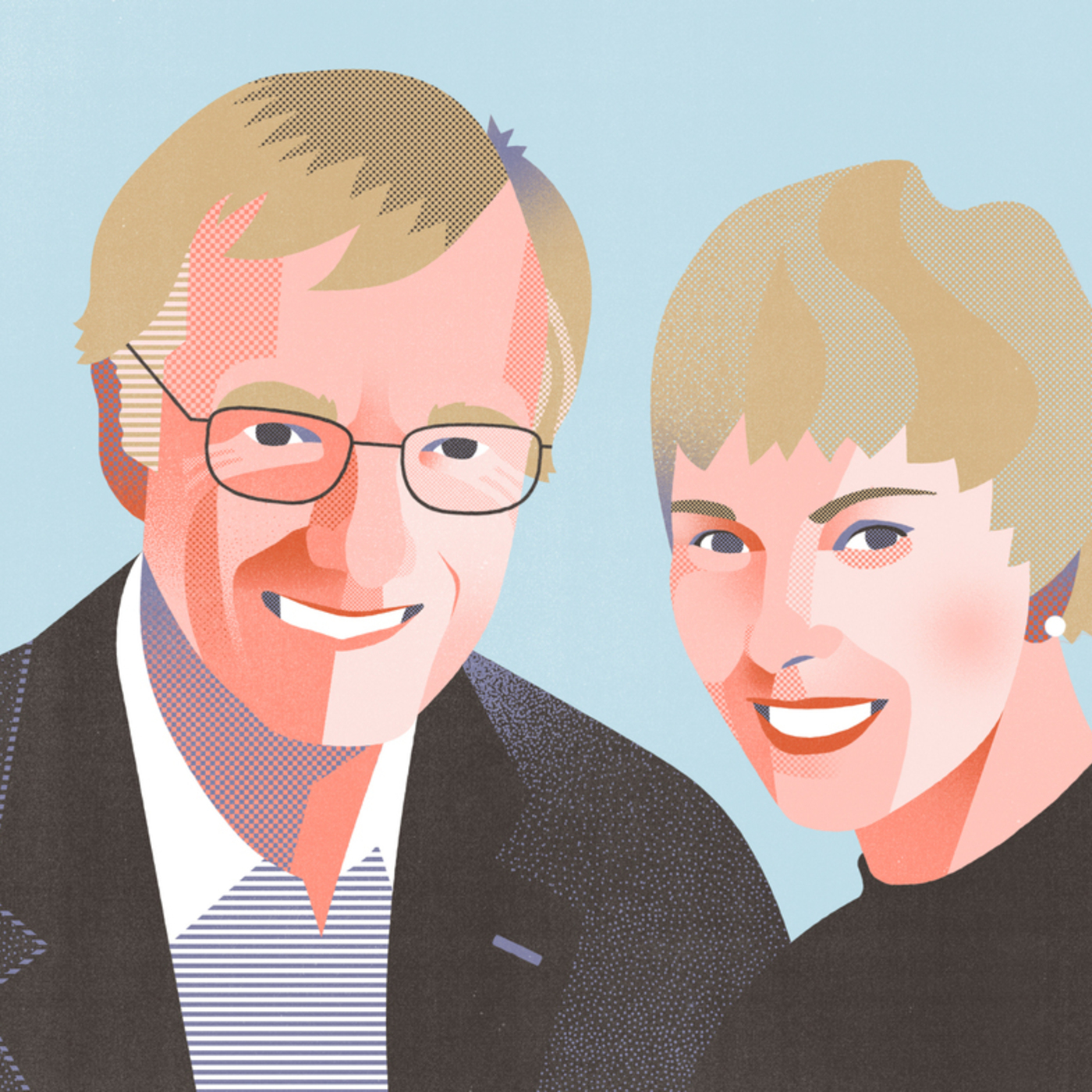
Lonely Planet: Maureen & Tony Wheeler (2017)
In 1972, Maureen and Tony Wheeler bought a beat-up car and drove from London "as far east as we could go." They wound up in Australia, by way of Afghanistan, India and Thailand. Their notes on how to travel on a shoestring became a book, which grew into Lonely Planet — the largest travel guide publisher in the world. PLUS in our postscript "How You Built That," an update with Melanie Colón, a frustrated renter who created an easier way to communicate with noisy neighbors, called Apt App. (Original broadcast date: May 8, 2017)
See Privacy Policy at https://art19.com/privacy and California Privacy Notice at https://art19.com/privacy#do-not-sell-my-info.
37:2209/07/2018
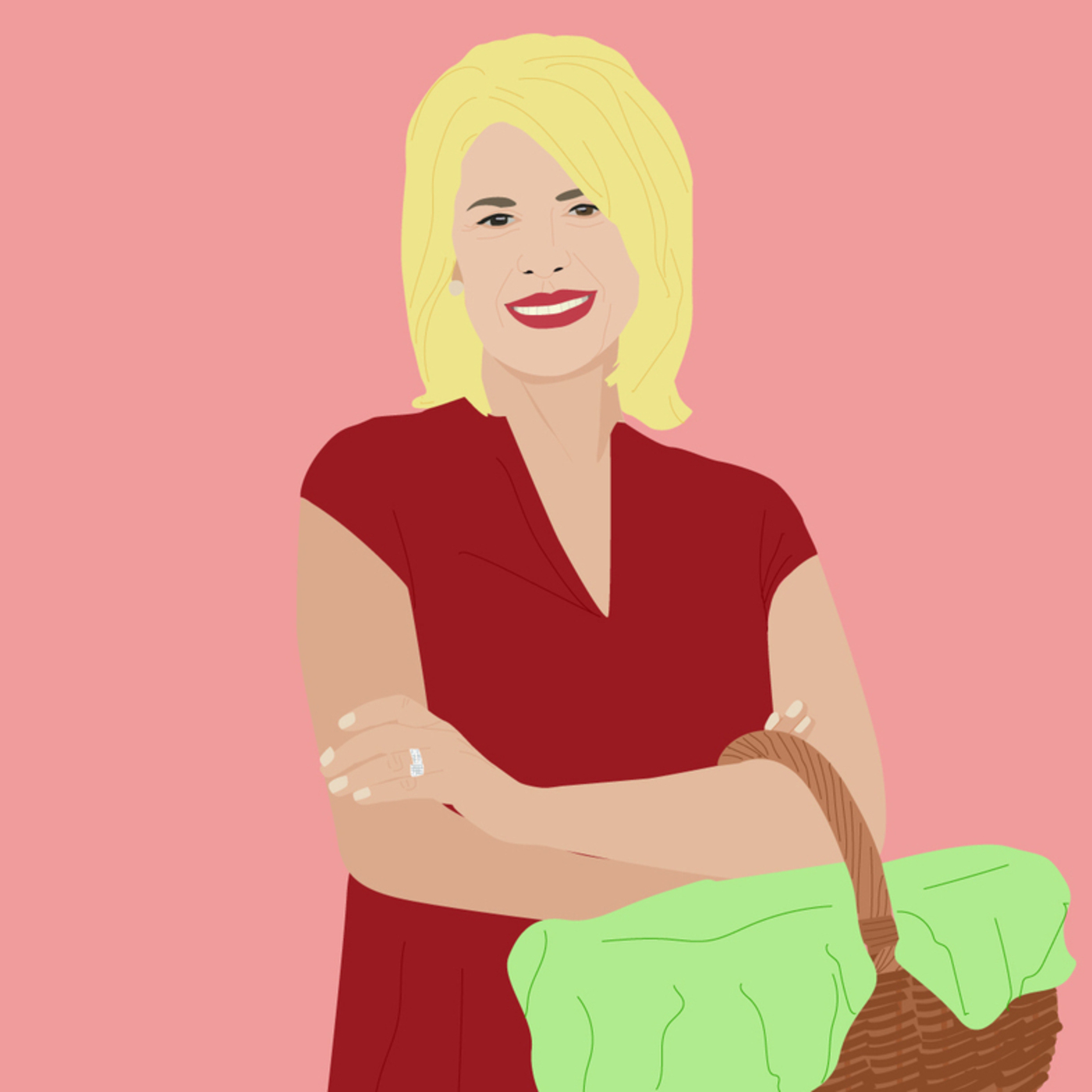
Chicken Salad Chick: Stacy Brown
For many of us, chicken salad is just another sandwich filling, but Stacy Brown turned it into a $75 million business. In 2007, she was a divorced mother of three looking for a way to make ends meet. So she started making chicken salad in her kitchen and selling it out of a basket, door-to-door. She eventually turned that home operation into Chicken Salad Chick, and took her recipes to cities across the U.S. Today, Chicken Salad Chick is one of the fastest growing companies in the country. PLUS, for our postscript "How You Built That," how Dan Kurzrock and Jordan Schwartz up-cycled beer grain into ReGrained nutrition bars.
See Privacy Policy at https://art19.com/privacy and California Privacy Notice at https://art19.com/privacy#do-not-sell-my-info.
55:5902/07/2018
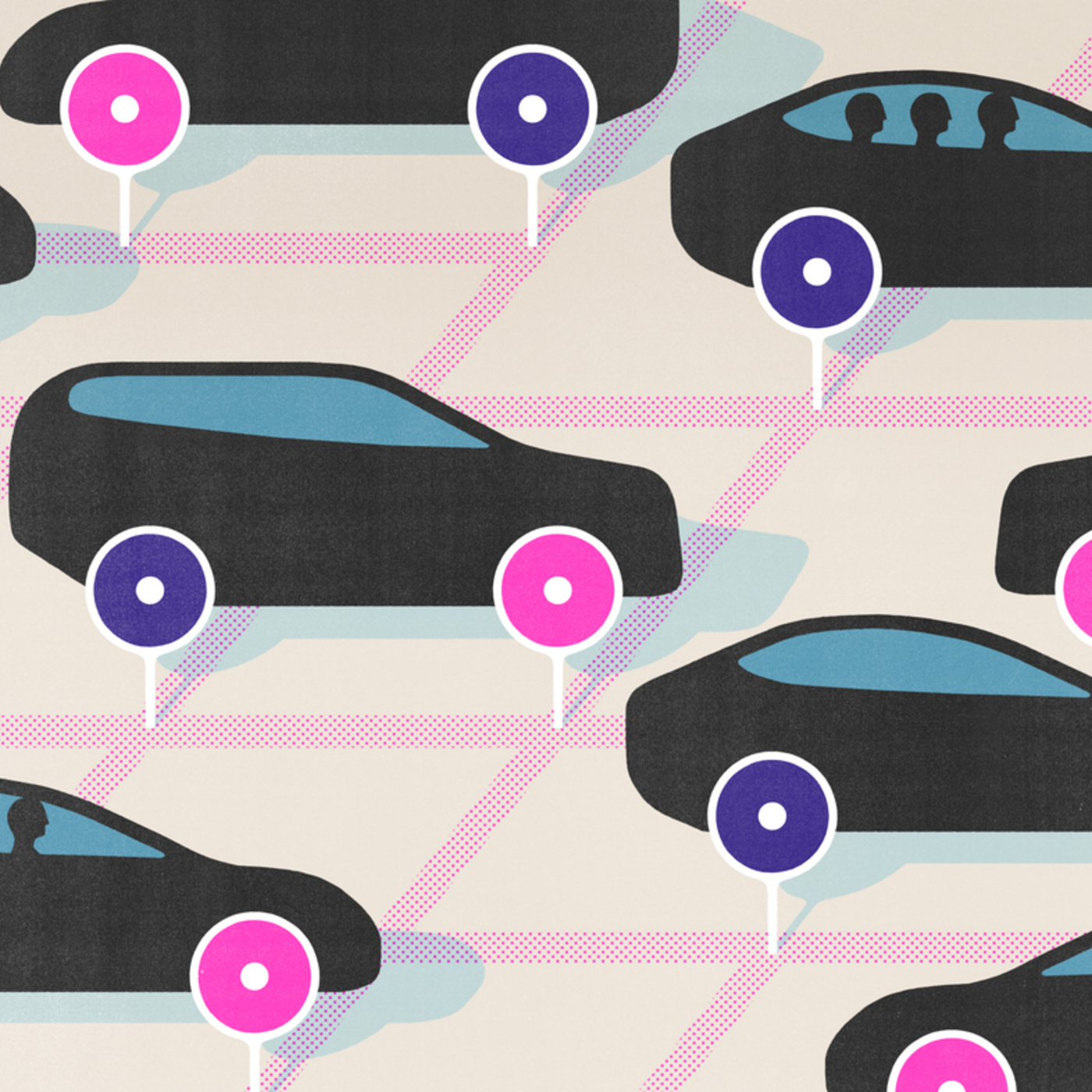
Lyft: John Zimmer (2017)
In 2006, John Zimmer was a college student and ride-hailing wasn't yet "a thing." But a class on green cities got him thinking about the glut of underused cars on the road. Eventually, he co-founded Lyft, a company that has helped make ride-hailing a fixture of American urban living. PLUS in our postscript "How You Built That," an update with Kyle Ewing, who almost set fire to his living room making Terraslate, a tough waterproof paper.
See Privacy Policy at https://art19.com/privacy and California Privacy Notice at https://art19.com/privacy#do-not-sell-my-info.
40:3925/06/2018
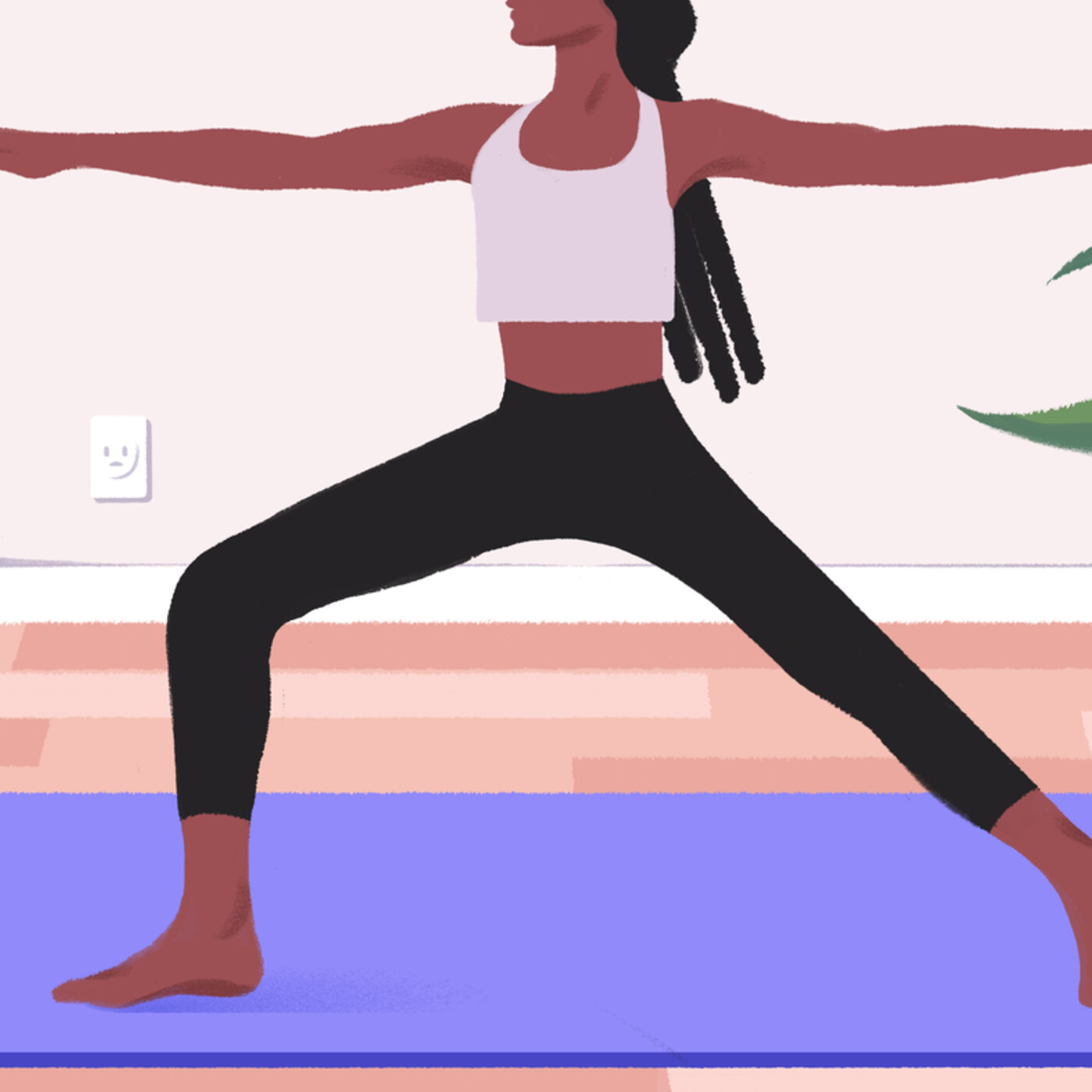
Lululemon Athletica: Chip Wilson
After noticing more and more people sign up for yoga in the late 1990s, Chip Wilson bet everything on an athletic apparel company aimed toward young professional women. What started as a small pop-up store in Vancouver eventually became the multibillion-dollar brand Lululemon Athletica, spawning a new fashion trend and forever changing what women wear at the gym. PLUS, for our postscript "How You Built That," how Mike Sorentino developed the EyePatch Case, an iPhone case that cleans and protects the phone's built-in cameras.
See Privacy Policy at https://art19.com/privacy and California Privacy Notice at https://art19.com/privacy#do-not-sell-my-info.
52:0718/06/2018
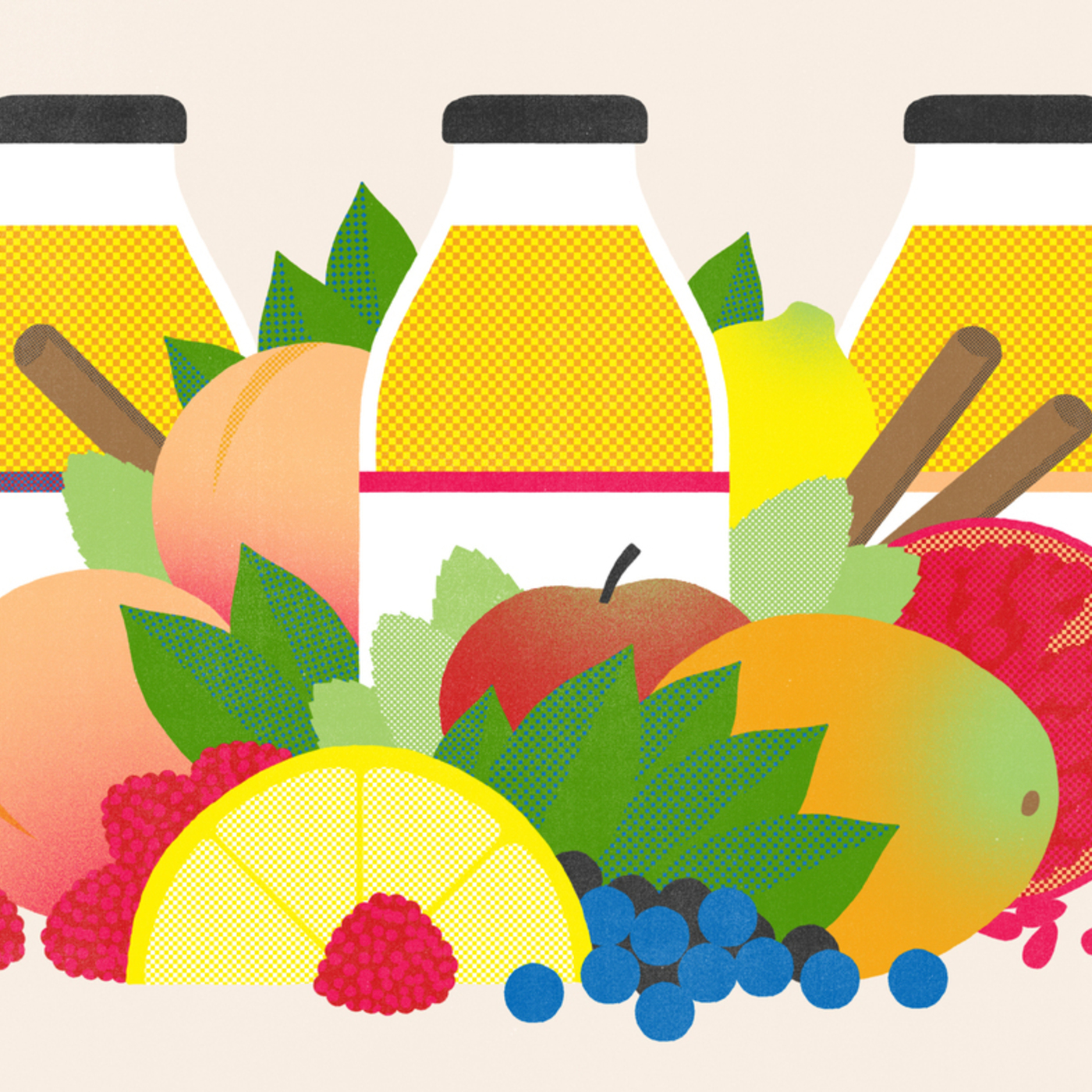
Honest Tea: Seth Goldman (2017)
In 1997, after going for a long run, Seth Goldman was frustrated with the sugar-filled drinks at the corner market. So he brewed up a beverage in his kitchen, and turned it into Honest Tea. PLUS, for our postscript "How You Built That," we check back in with Jaya Iyer for an update on Svaha Inc., a unique apparel brand that focuses on STEM-themed clothing for babies, kids, and adults. (Original broadcast date: January 16, 2017)
See Privacy Policy at https://art19.com/privacy and California Privacy Notice at https://art19.com/privacy#do-not-sell-my-info.
29:0911/06/2018

Remembering Kate Spade
We are incredibly saddened by the loss of the brilliant designer and entrepreneur Kate Spade. We are grateful she and her husband Andy Spade shared their story with us in 2017. The origins of the Kate Spade brand can be drawn back to a 1991 conversation at a Mexican restaurant, when Andy asked Kate, "What's missing in designer handbags?" Kate's answer was a simple modern-shaped handbag that launched the iconic fashion brand.
See Privacy Policy at https://art19.com/privacy and California Privacy Notice at https://art19.com/privacy#do-not-sell-my-info.
36:1905/06/2018

Minted: Mariam Naficy
In 2000, Mariam Naficy sold her first company, an online cosmetics store called Eve.com, for $110 million. Several years later, she got the entrepreneurial itch once again: she founded Minted, an online stationery store that solicits designs from artists all over the world. Today Minted is one of the biggest crowdsourcing platforms on the Internet. PLUS for our postscript, "How You Built That," how Vanessa and Casey White turned their grandfather's pierogi recipe into Jaju Pierogi.
See Privacy Policy at https://art19.com/privacy and California Privacy Notice at https://art19.com/privacy#do-not-sell-my-info.
49:3704/06/2018
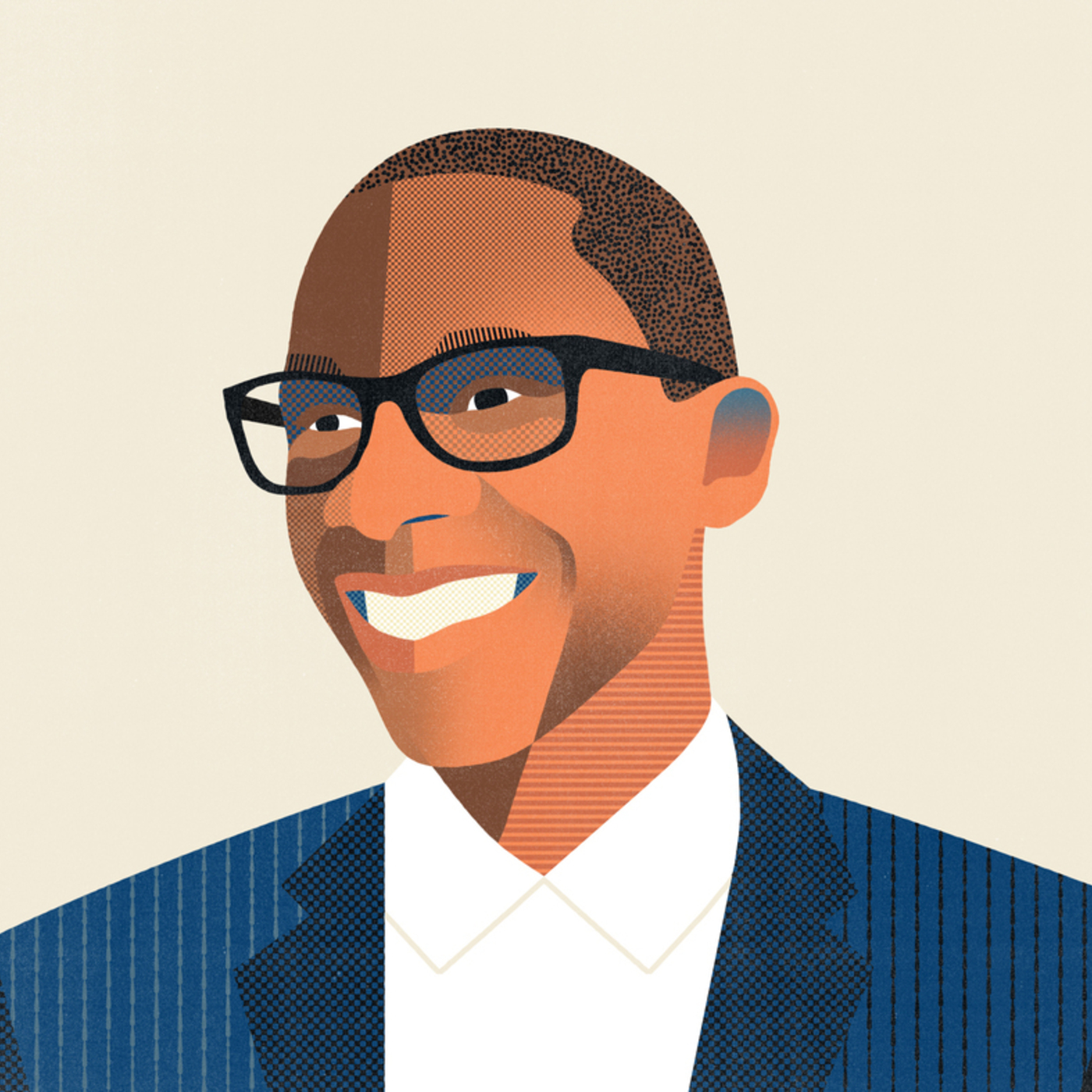
Lady Gaga & Atom Factory: Troy Carter (2018)
As a kid, Troy Carter dreamed of being a rapper, but soon discovered he was a better manager than a musician. He took Lady Gaga from obscurity to stardom – helping shape both her music and her brand. Then he turned his gift for spotting talent to spotting investment opportunities with his company Atom Factory. PLUS, for our postscript "How You Built That," we check back with Robyn Gerber for an update on Parkarr, a mobile app that helps drivers find street-parking.
See Privacy Policy at https://art19.com/privacy and California Privacy Notice at https://art19.com/privacy#do-not-sell-my-info.
47:5028/05/2018
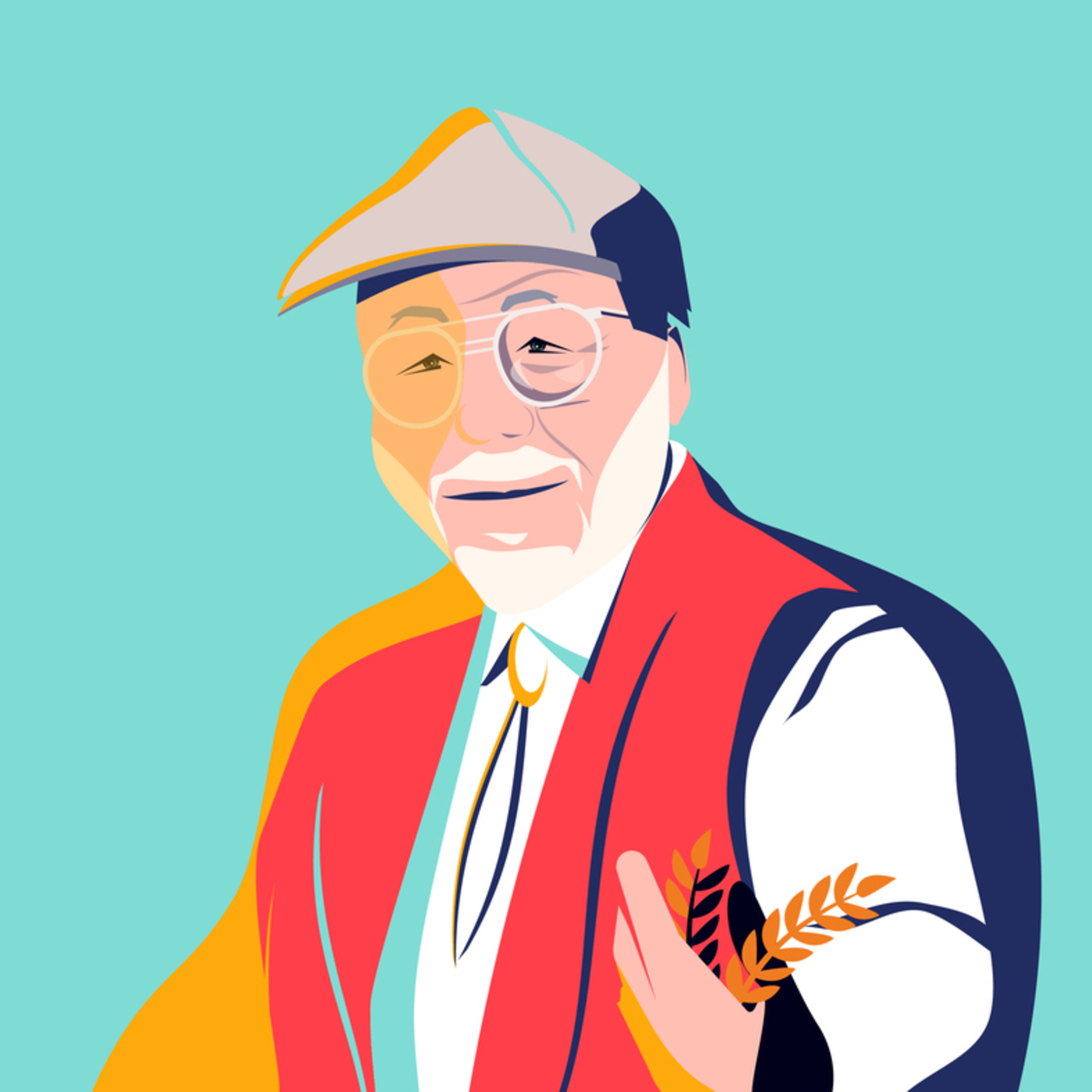
Bob's Red Mill: Bob Moore
In the 1960s, Bob Moore read a book about an old grain mill and was inspired to start his own. Using giant quartz stones from the 19th century, he made dozens of different cereals and flours, positioning his company at the forefront of the health food boom. Today, Bob's Red Mill has grown into a $100 million business – and at nearly 90, Bob goes to work at the mill every day. PLUS, for our postscript, "How You Built That," how Mike Bolos and Jason Grohowski created the portable desk, Deskview.
See Privacy Policy at https://art19.com/privacy and California Privacy Notice at https://art19.com/privacy#do-not-sell-my-info.
45:0121/05/2018
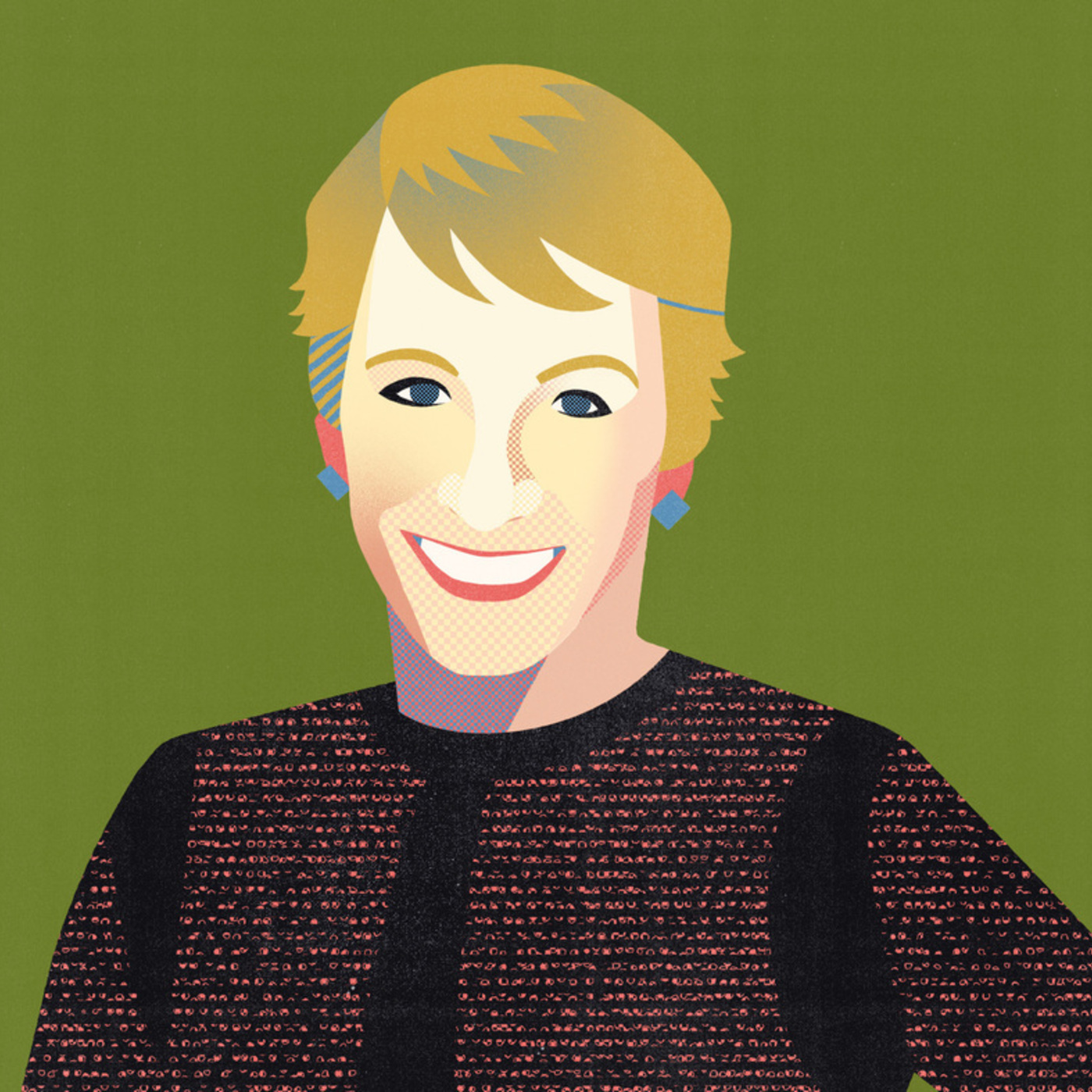
Real Estate Mogul: Barbara Corcoran (2017)
Barbara Corcoran grew up in a working-class Irish Catholic family in Jersey – with nine brothers and sisters. But she used her charisma to conquer the streets of Manhattan and build the real estate company, The Corcoran Group. She then reinvented herself as a shark – on Shark Tank. PLUS, for our postscript "How You Built That," we check back with Aryel Rivero and Vanessa Clavijo for an update on their business, Gift Wrap My Face, which designs and prints custom gift wrapping featuring the faces of people you love. (Original broadcast date: April 24, 2017)See Privacy Policy at https://art19.com/privacy and California Privacy Notice at https://art19.com/privacy#do-not-sell-my-info.
51:0314/05/2018
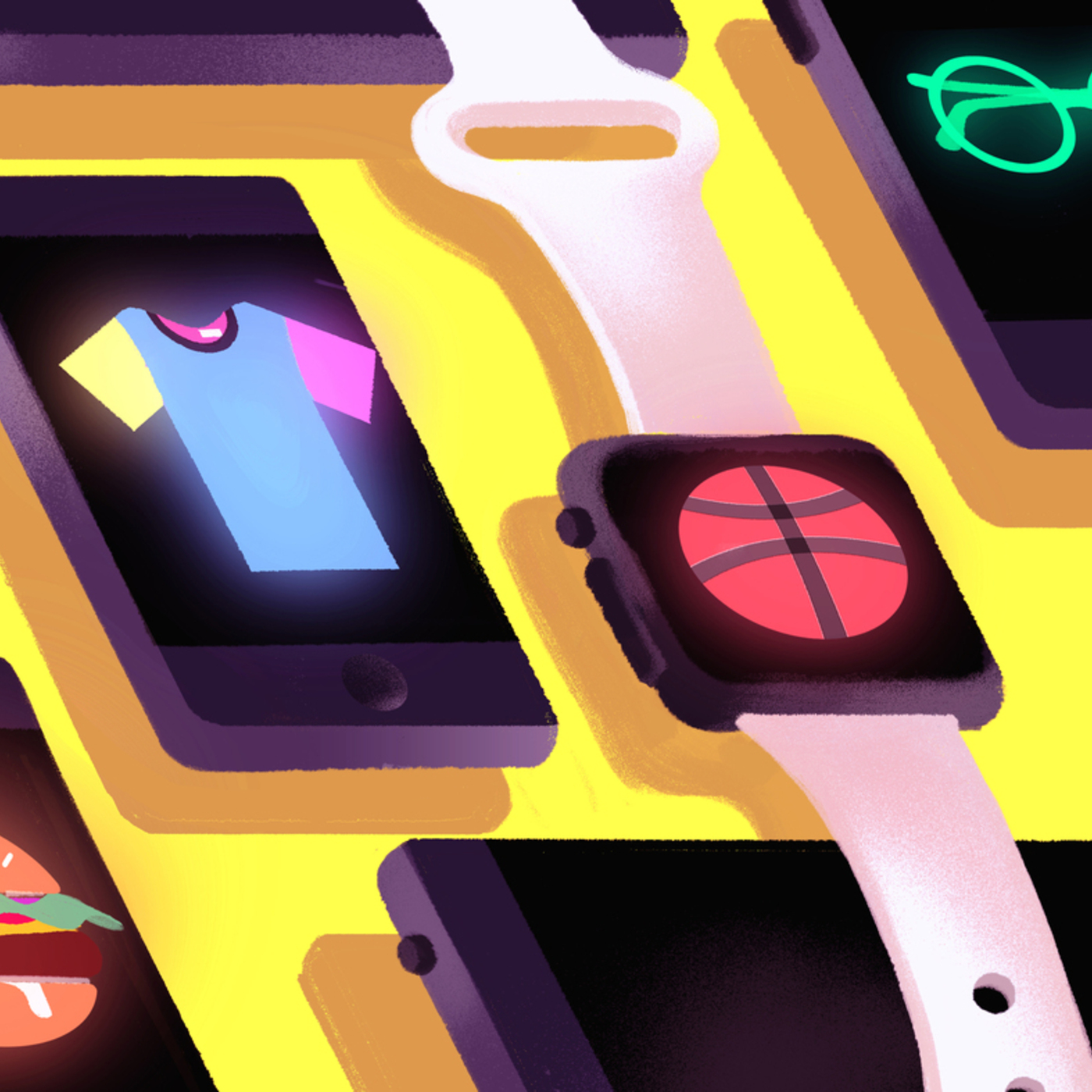
Stripe: Patrick and John Collison
Brothers Patrick and John Collison founded and sold their first company before they turned 20. They created software to help eBay users manage inventory online, which set them on a path to help make e-commerce frictionless. Today, John and Patrick are the founders of Stripe, a software company that uses just a few lines of code to power the payment system of companies like Lyft, Warby Parker and Target. Plus, for our postscript "How You Built That," how Robert Armstrong turned his grandma's cookie recipe into "G Mommas," buttery, bite-sized pecan-chocolate-chip cookies that are now sold in stores across the Southeast U.S.
See Privacy Policy at https://art19.com/privacy and California Privacy Notice at https://art19.com/privacy#do-not-sell-my-info.
41:4007/05/2018
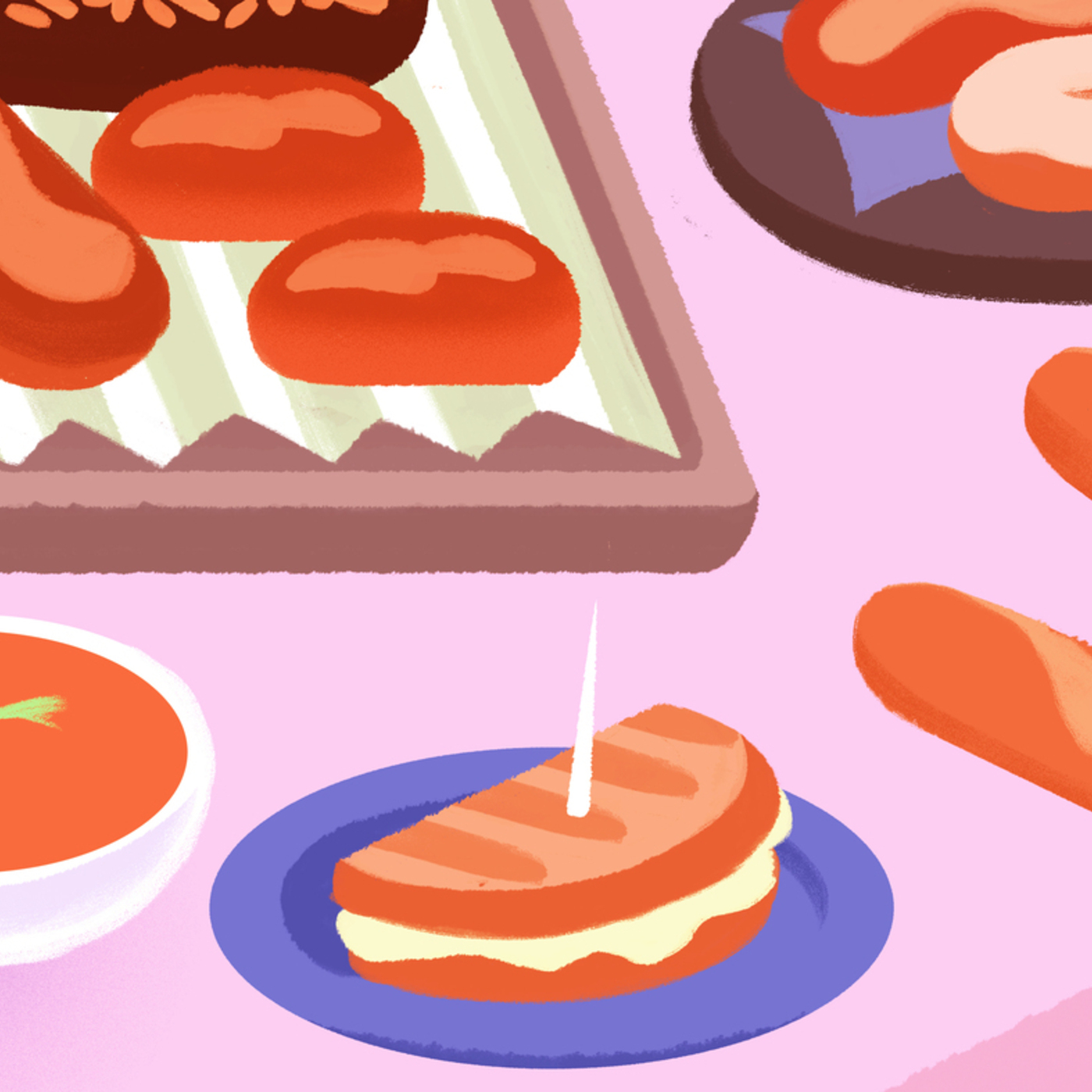
Panera Bread/Au Bon Pain: Ron Shaich
In the early 1980s, Ron Shaich bought a small, struggling Boston bakery chain called Au Bon Pain, and built it out to 250 locations nationwide. Ron then saw an opportunity to build something even bigger: Panera Bread. It was the start of "fast casual" – a new kind of eating experience, between fast food and restaurant dining. Today, Panera Bread has over 2,000 stores, and $5 billion in annual sales. Plus, for our postscript "How You Built That," how Tyson Walters got so tired of his St. Bernard shedding everywhere that he created the Shed Defender, a zip-up body suit for dogs that captures loose hair.
See Privacy Policy at https://art19.com/privacy and California Privacy Notice at https://art19.com/privacy#do-not-sell-my-info.
41:5830/04/2018
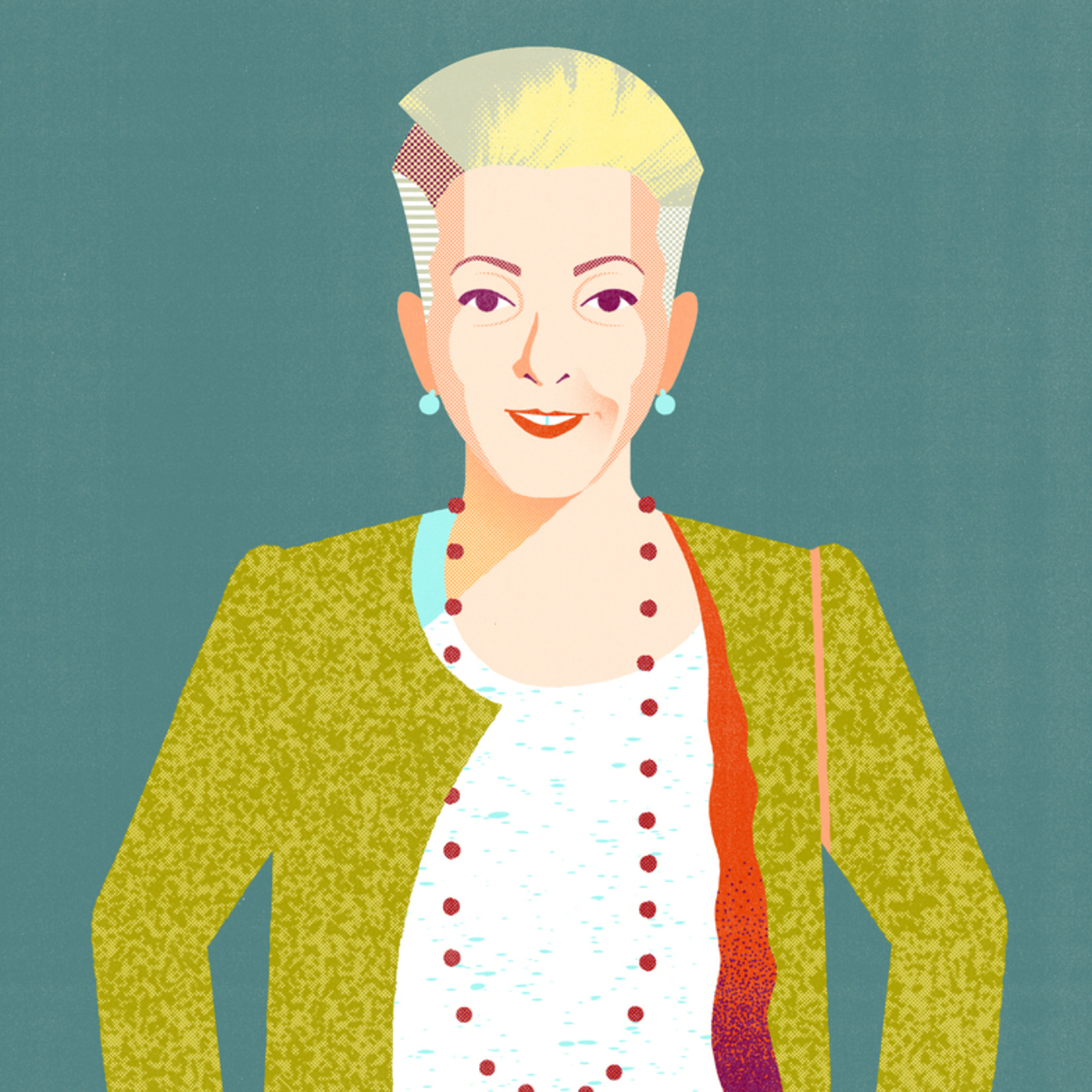
Dermalogica: Jane Wurwand (2016)
Jane Wurwand moved to Los Angeles with a suitcase and a beauty school diploma. She started what would become Dermalogica, an international beauty empire that set the standard for skin care. PLUS in our postscript "How You Built That," we check back with Nick Gilson for an update on his company, Gilson Snowboards, a snowboard & ski company based in Pennsylvania. (Original broadcast date: October 24, 2016)
See Privacy Policy at https://art19.com/privacy and California Privacy Notice at https://art19.com/privacy#do-not-sell-my-info.
40:1023/04/2018

Wayfair: Niraj Shah & Steve Conine
After selling their first small business and shuttering their second, former college roommates Niraj Shah and Steve Conine thought about getting "normal" jobs. But in the early 2000s, they stumbled across an unexpected trend: people were buying furniture online to get a wider selection. Within a few years, Niraj and Steve launched 250 different websites, selling everything from barstools to birdhouses. Eventually, they consolidated these sites into one giant brand: Wayfair. The company now carries more than 10 million items for home and last year brought in more than $4 billion in sales. Plus, for our postscript "How You Built That," how Carin Luna-Ostaseski fell in love with scotch and became the first American woman to create a Scotch whisky company.
See Privacy Policy at https://art19.com/privacy and California Privacy Notice at https://art19.com/privacy#do-not-sell-my-info.
46:2216/04/2018

FUBU: Daymond John
Daymond John grew up during the 1980s in the heart of hip hop culture: Hollis, Queens. In his early 20s, he was working at Red Lobster and trying to figure out how to start a business. Eventually, he stumbled on the idea of making clothes for fans of rap music. In 1992, he started FUBU (For Us By Us) and began selling hats outside of a local mall. Three years later, FUBU was bringing in $350 million in sales. Today, he's a judge on Shark Tank, and a motivational speaker and author. Plus, for our postscript "How You Built That", how Len Testa created an app that uses real-time data to help people avoid long lines at theme parks.
See Privacy Policy at https://art19.com/privacy and California Privacy Notice at https://art19.com/privacy#do-not-sell-my-info.
51:5209/04/2018

Stitch Fix: Katrina Lake
In 2010, Katrina Lake recruited 20 friends for an experiment: she wanted to see if she could choose clothes for them that accurately matched their style and personality. That idea sparked Stitch Fix, an online personal shopping service that aims to take the guesswork out of shopping. Today, it has over two million customers and brings in nearly a billion dollars in annual revenue. Plus, for our postscript "How You Built That", how Brian Sonia-Wallace built "Rent Poet" — a poem-on-demand service for weddings, corporate gatherings, and other events.
See Privacy Policy at https://art19.com/privacy and California Privacy Notice at https://art19.com/privacy#do-not-sell-my-info.
50:4802/04/2018
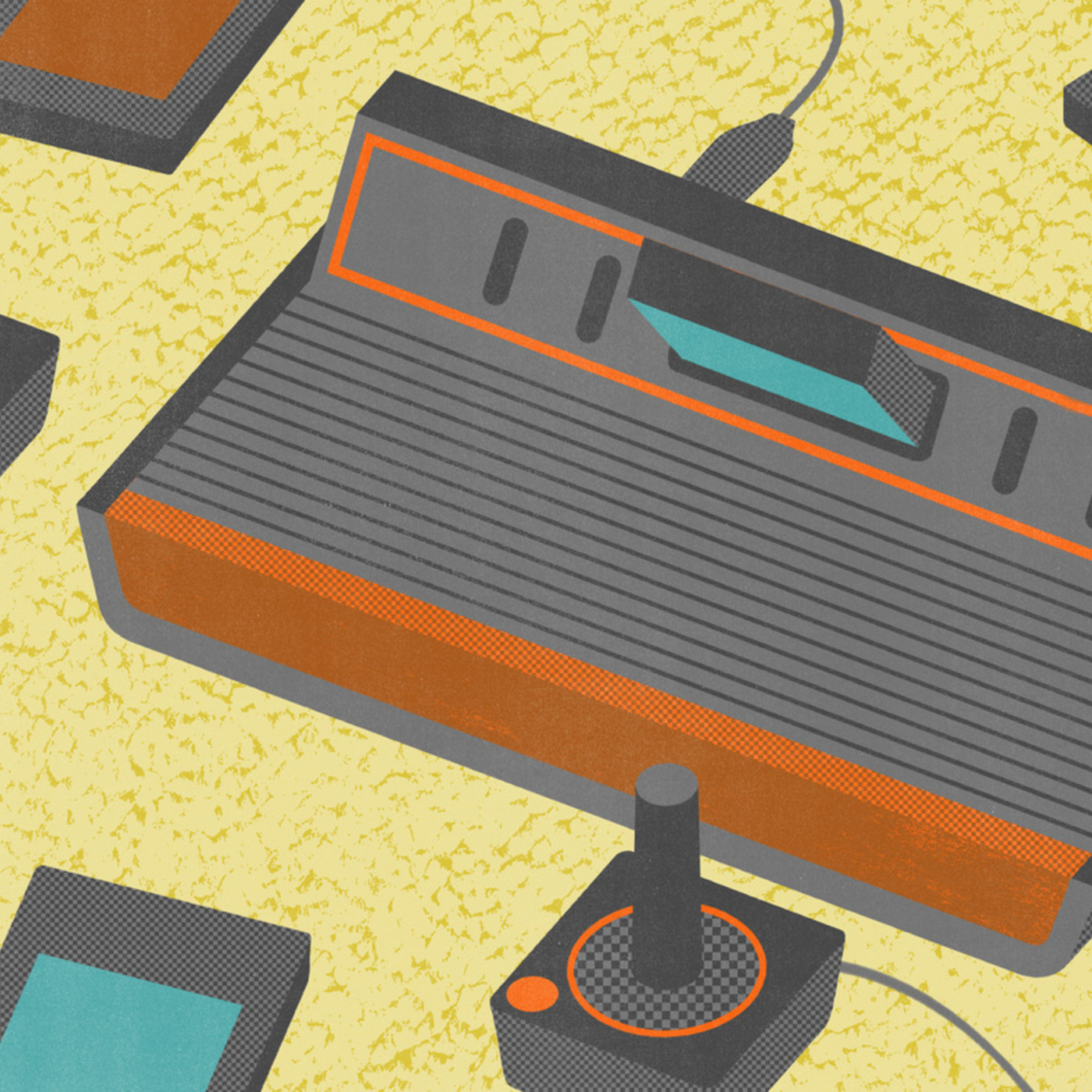
Atari & Chuck E. Cheese's: Nolan Bushnell (2017)
Before he turned 40, Nolan Bushnell founded two brands that permanently shaped the way Americans amuse themselves: the iconic video game system Atari, and the frenetic family restaurant Chuck E. Cheese's. PLUS in our postscript "How You Built That," an update on H2OPS, a non-alcoholic take on craft-brewed – a fragrant sparkling water made with hops. (Original broadcast date: February 27, 2017)
See Privacy Policy at https://art19.com/privacy and California Privacy Notice at https://art19.com/privacy#do-not-sell-my-info.
49:1626/03/2018

LÄRABAR: Lara Merriken
In 2000, Lara Merriken was 32, recently divorced, and without a job when she decided to make energy bars by mixing cherries, dates, and almonds in her Cuisinart. Eventually, she perfected the recipe and launched her company: LÄRABAR. After just two years, the company was bringing in millions in revenue. In 2008, she sold to General Mills, but stayed on to help grow LÄRABAR into one of the biggest energy bar brands in the U.S. Plus, for our postscript "How You Built That", how two brothers from Guinea, West Africa founded a company that makes Ginjan, a spicy-sweet juice from their boyhood, which mixes pineapple and ginger.
See Privacy Policy at https://art19.com/privacy and California Privacy Notice at https://art19.com/privacy#do-not-sell-my-info.
53:4419/03/2018

The Knot: Carley Roney & David Liu
When Carley Roney and David Liu got married, they had a seat-of-the-pants celebration on a sweltering Washington rooftop. They never planned to go into the wedding business, but soon saw an opportunity in the market for a fresh approach to wedding planning. In 1996, they founded The Knot, a website with an irreverent attitude about "the big day." The Knot weathered the dot.com bust, a stock market meltdown, and eventually grew into the lifestyle brand XO Group, valued at $500 million. PLUS for our postscript "How You Built That," how Michael Dixon's business, Mobile Vinyl Recorders, uses portable record lathes to cut vinyl at parties, weddings, and music festivals.
See Privacy Policy at https://art19.com/privacy and California Privacy Notice at https://art19.com/privacy#do-not-sell-my-info.
54:5112/03/2018

1-800-GOT-JUNK?: Brian Scudamore (2018)
Brian Scudamore didn't dream of a life hauling away other people's trash. But when he needed to pay for college, he bought a $700 pickup truck, painted his phone number on the side, and started hauling. Now 1-800-GOT-JUNK? makes close to $300 million in annual revenue. PLUS for our postscript "How You Built That," an update on Bloomerent, an online service that helps couples save wedding costs by letting them share flower arrangements on the same weekend. (Original broadcast date: April 17, 2017)
See Privacy Policy at https://art19.com/privacy and California Privacy Notice at https://art19.com/privacy#do-not-sell-my-info.
40:1505/03/2018

Live Episode! Jeni's Splendid Ice Creams: Jeni Britton Bauer
Even as a kid, Jeni Britton Bauer knew she was going to start a business one day. But she had no idea that her love for perfume would inspire her to start experimenting with ice cream. After years of hustling, she eventually launched Jeni's Splendid Ice Creams, a company that now has more than 30 stores nationally and touts unique flavors like Brambleberry Crisp and Lemon Buttermilk. Recorded live in Columbus, Ohio.
See Privacy Policy at https://art19.com/privacy and California Privacy Notice at https://art19.com/privacy#do-not-sell-my-info.
46:5928/02/2018

Wikipedia: Jimmy Wales
During the dot com boom of the late 1990s, Jimmy Wales was running an internet search company. That's when he began to experiment with the idea of an online encyclopedia. In 2001, Wales launched Wikipedia, a website where thousands of community members could contribute, edit, and monitor content on just about anything. Today, the non-profit has stayed true to its open source roots and is the fifth most visited website in the world. PLUS in our postscript "How You Built That," how Florence Wetterwald created Blabla dolls – eco-friendly knitted dolls made in Peru.
See Privacy Policy at https://art19.com/privacy and California Privacy Notice at https://art19.com/privacy#do-not-sell-my-info.
41:4826/02/2018
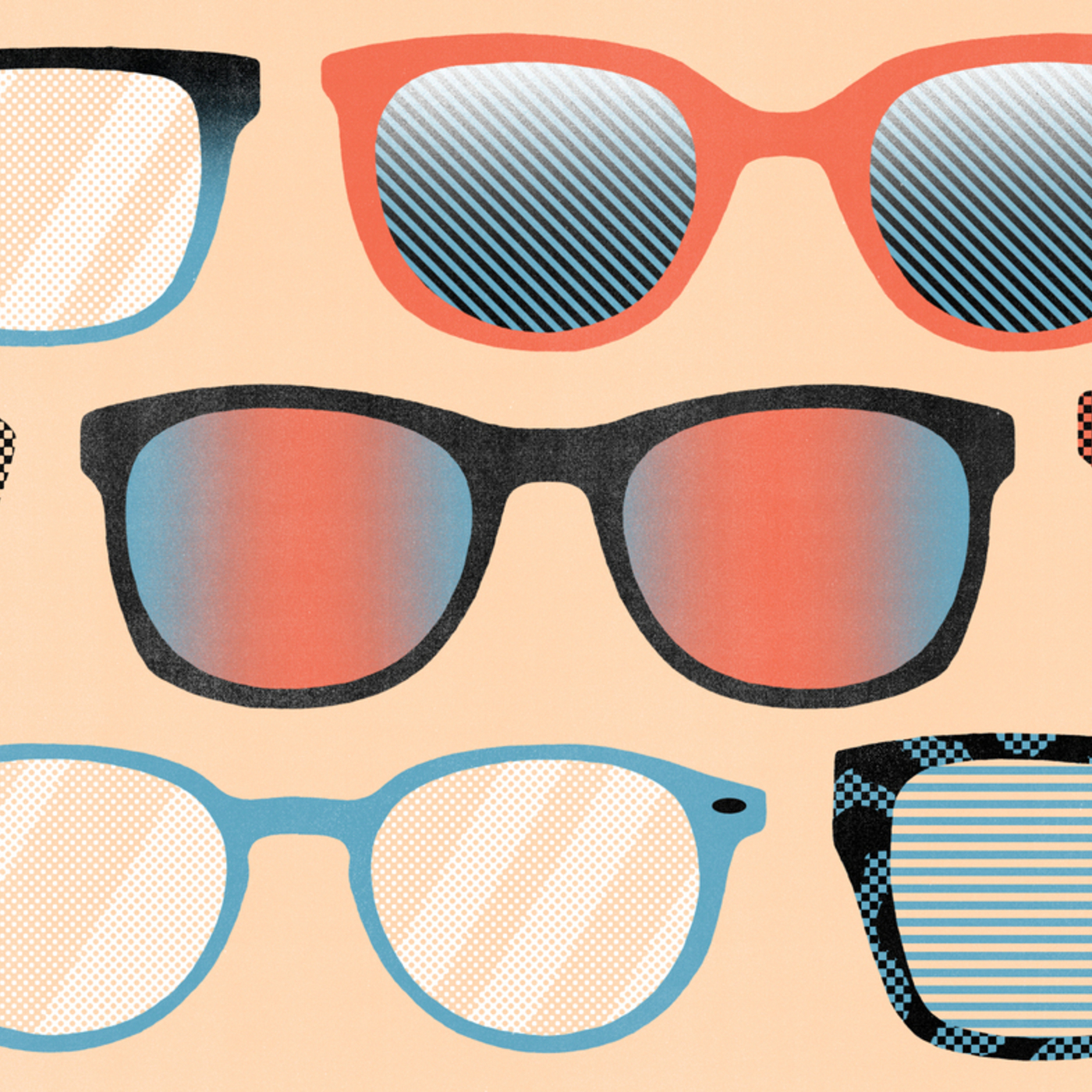
Warby Parker: Dave Gilboa & Neil Blumenthal (2016)
In 2008, it was nearly impossible to buy a fashionable, affordable pair of glasses online. That simple frustration inspired the idea behind Warby Parker – and disrupted the eyewear industry. PLUS for our postscript "How You Built That," an update on Bellyak, a kayak where you lie on your belly and paddle with your hands. (Original broadcast date: December 26, 2016)
See Privacy Policy at https://art19.com/privacy and California Privacy Notice at https://art19.com/privacy#do-not-sell-my-info.
31:2719/02/2018

Dyson: James Dyson
In 1979, James Dyson had an idea for a new vacuum cleaner — one that didn't use bags. It took him five years to perfect the design, building more than 5,000 prototypes in his backyard shed. He then tried to convince the big vacuum brands to license his invention, but most wouldn't even take his calls. Eventually, he started his own company. Today, Dyson is one of the best-selling vacuum brands in the world, and James Dyson is a billionaire. PLUS for our postscript "How You Built That," how Theresa Stotesbury made a business out of fake blood — a synthetic material that helps create a realistic crime scene for police training.
See Privacy Policy at https://art19.com/privacy and California Privacy Notice at https://art19.com/privacy#do-not-sell-my-info.
42:5712/02/2018

Melissa & Doug: Melissa And Doug Bernstein (2016)
Melissa and Doug Bernstein's first success was a wooden 'fuzzy puzzle' of farm animals. Today, Melissa & Doug makes over 2,000 kinds of toys and serves as an antidote to the rise of digital toys. PLUS for our postscript "How You Built That," an update on The Cut Buddy, a stencil device that helps you cut your own hair. (Original broadcast date: December 19, 2016)
See Privacy Policy at https://art19.com/privacy and California Privacy Notice at https://art19.com/privacy#do-not-sell-my-info.
39:3905/02/2018

Dell Computers: Michael Dell
Before it became fashionable to start a tech company in your dorm room, Michael Dell did exactly that. In 1983, he began selling upgrade kits for PC's out of his dorm at UT Austin. A few months later he gave up his plan of being Pre-Med, and dropped out of school to focus on the PC business. At age of 27, he became the youngest CEO to head a Fortune 500 company. Today, Dell has sold more than 650 million computers. PLUS for our postscript "How You Built That," how Hannah England turned a common parenting problem into Wash. It. Later. — a water-tight bag for soaking soiled baby clothes before they stain.
See Privacy Policy at https://art19.com/privacy and California Privacy Notice at https://art19.com/privacy#do-not-sell-my-info.
48:0829/01/2018





